New Fellows 2024
ATSE's 32 new Fellows for 2024 showcase the breadth and depth of world-class Australian innovation.
ATSE's 32 new Fellows for 2024 showcase the breadth and depth of world-class Australian innovation.
Angeline Achariya FTSE — Food innovation leader
Anne-Marie Birkill FTSE — Technology and healthcare investor
Alex Brown FTSE FAHMS — Acclaimed medical expert
Dr Josep (Pep) Canadell FTSE — World-leading climate scientist
Professor Frank Caruso FRS FTSE FAA — Pioneering particle engineer
Scientia Professor Liming Dai FTSE FAA — Materials science maestro
Dr Iris Depaz FTSE — Life sciences champion
Karen Dobson FTSE — Change management leader
Rachelle Doyle FTSE — Energy transition advocate
Rear Admiral Rachel Durbin CSC RAN FTSE — Maritime engineering leader
Professor Clinton Fookes FTSE — Artificial intelligence innovator
Dr Michelle Heupel FTSE — Pioneering ocean ecologist
Gabrielle Iwanow FTSE — Mineral resources changemaker
Professor Misty Jenkins AO FTSE — Outstanding cancer immunologist
Dr Fiona Kerr FTSE — Pathbreaking human-centred technologist
Distinguished Professor Michelle Leishman FTSE — Preeminent plant ecologist
Distinguished Professor David Moss FTSE — World-leading photonics researcher
Anne O’Neill FTSE — Health innovation changemaker
Adjunct Professor Craig Rayner FTSE — Pharmaceutical development expert
Professor Paul Simshauser AM FTSE — Exceptional energy economist
Guy Templeton FTSE FAICD — Impactful infrastructure engineer
Dr James Tickner FTSE — Scientist, innovator and entrepreneur
Professor Karin Verspoor FTSE — AI in Healthcare leader
Scientia Professor Toby Walsh FTSE FAA — Artificial intelligence pioneer
Professor Lianzhou Wang FTSE FAA — Semiconductor materials innovator
Dr Zongli Xie FTSE — Membrane & catalysis groundbreaker
Professor Xiwang Zhang FTSE — Sustainable technology innovator
Professor Yixia (Sarah) Zhang FTSE — Advanced materials creator
Professor Chuan Zhao FTSE — Hydrogen paradigm shifter
Professor Yan Zhuge FTSE — Waste conversion trailblazer
Honorary Fellow: Fiona Simson FTSE — Global agriculture advocate
Foreign Fellow: Professor Sally Benson FTSE — Climate policy powerhouse
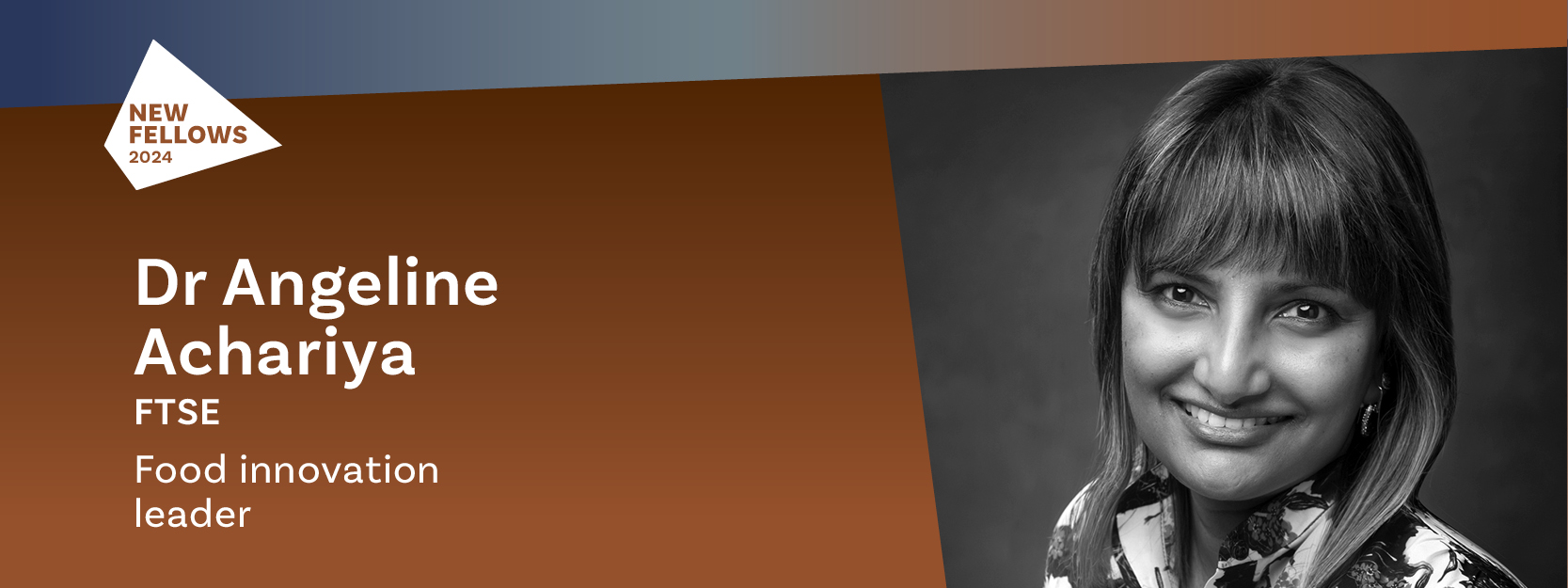
A pathfinding leader in the agrifood sector, Dr Angeline Achariya is enhancing Australia’s reputation as a leading value added agriculture producer and food manufacturer through her work. She has transformed the interface between academia, industry and government, spearheading the commercialisation of over 1200 innovations globally across value added products, processes and new business models through innovation. She has worked across large multinational companies and high-growth start-ups and advised state and federal government decision-makers. Dr Achariya was pivotal in establishing the world-first Food Innovation Centre, a collaboration between industry and government now based at Monash University. She champions gender equity as chair of the Australian chapter of G100 Mission Million for Food systems innovation and resilience, an influential group of women leaders establishing an inclusive approach to gender empowerment across the agrifood system. She serves on public and private boards and a senior advisor at Beanstalk Agtech. Beyond boardrooms, Angeline is an international speaker, a LinkedIn global top voice for her leadership and influence. Angeline’s journey is an inspiration – a testament to the transformative power of collaborative passion, leadership, and dedication to a more connected, sustainable world.
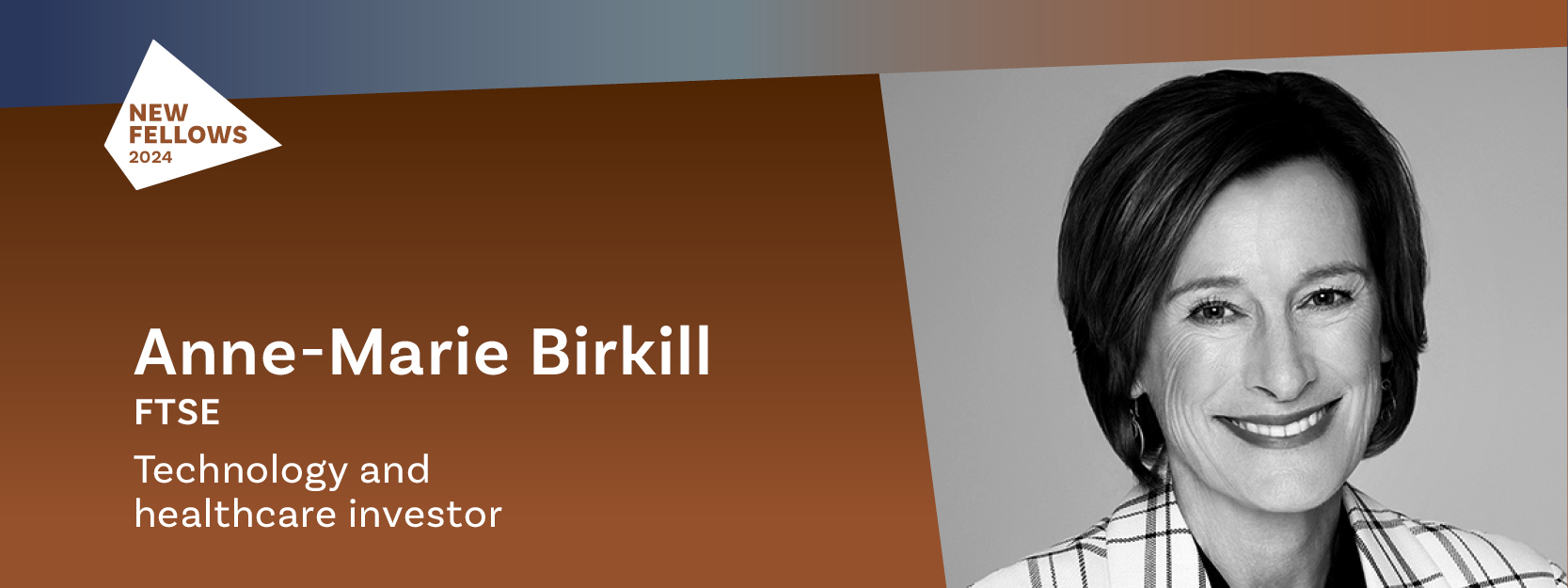
Anne-Marie Birkill has an outstanding track record and impact spanning three decades in research commercialisation and venture capital investment. With a passion for nurturing groundbreaking scientific ideas and transforming them into high-value game-changing solutions, in 2010 she co-founded OneVentures, a venture capital firm focused on investing in companies with innovative technologies. Some of the standout successes she has advanced include technologies in vaccines, e-health and batteries. Ms Birkill has also served as director and advisor for other companies; engaged widely with industry, universities and government; and mentored many entrepreneurs, placing her at the heart of Australia’s innovation ecosystem. She is a champion for diversity, having founded Women in Biotechnology (later merged to become Women in Technology) and mentoring young women in venture capital through the Australian Investment Council.
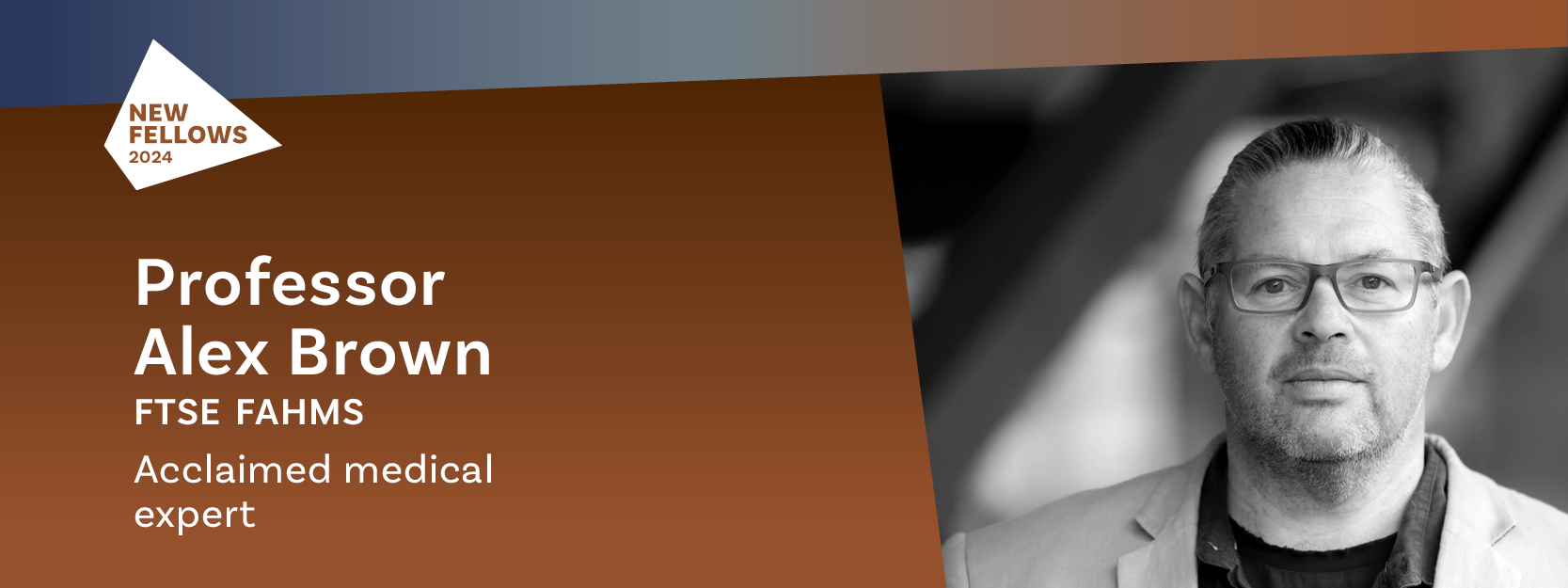
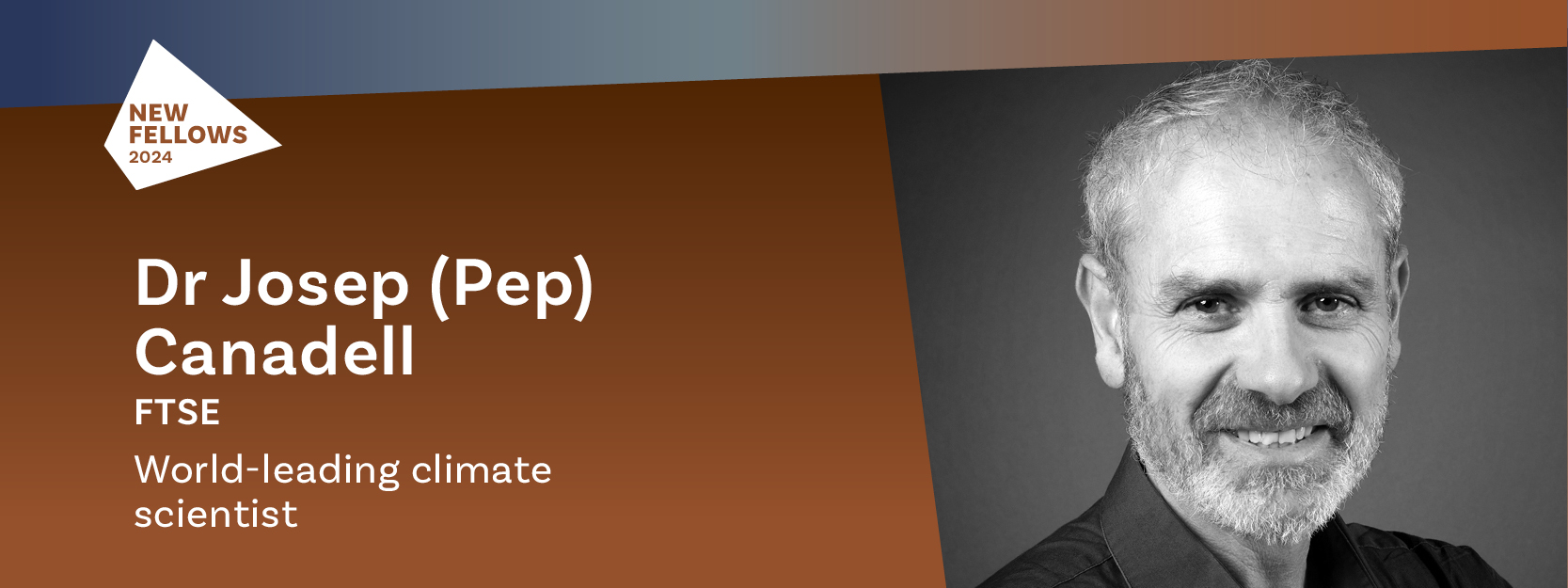
Dr Pep Canadell is an eminent world authority on biogeochemistry, particularly the human impact on the Earth’s carbon cycle and ecological processes. He developed integrative methodologies for estimating global carbon sources and sinks, which have become the world standard. He is chief research scientist at CSIRO Environment and chief lead investigator in the Climate Systems Hub at the National Environmental Science Program. He is also the executive director of the Global Carbon Project, the most authoritative global source of annual carbon budgets and trend analyses for the major greenhouse gases. He has been a contributor to the Intergovernmental Panel on Climate Change for 18 years, and his work profoundly influences governments, international climate negotiations, and carbon accounting by non-state actors. In 2021, he was named the 8th most influential climate scientist in the world.
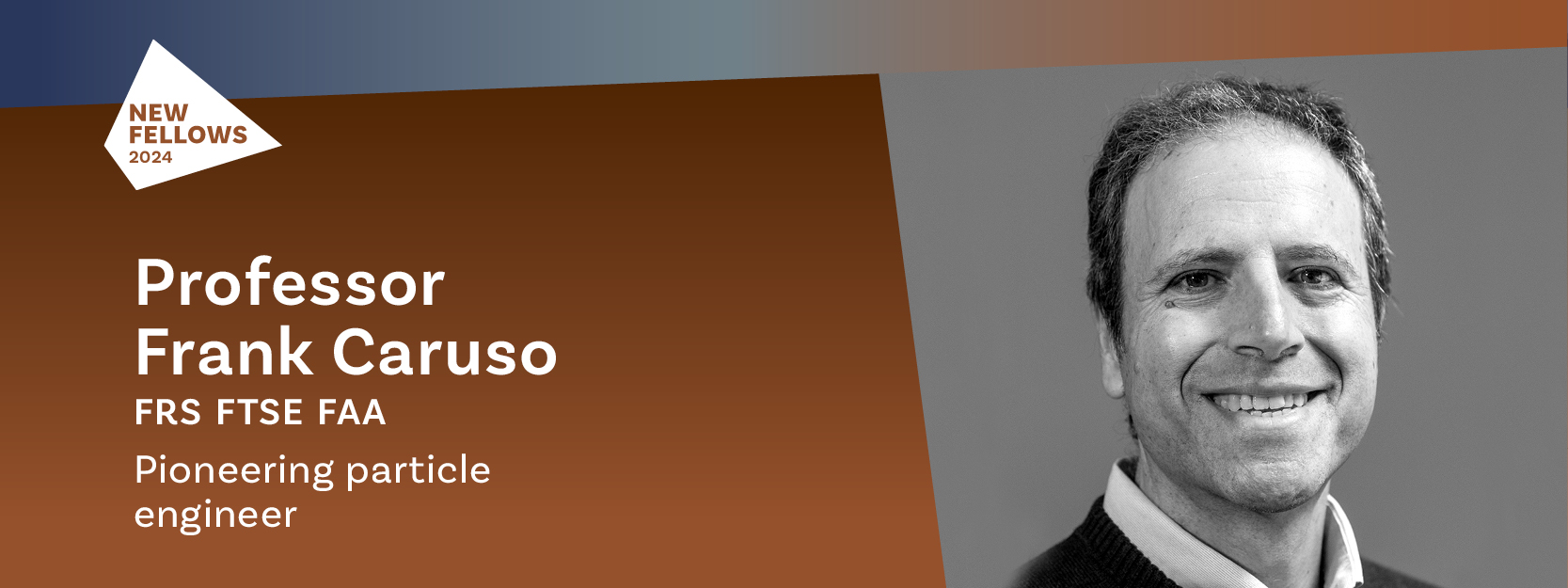
Professor Frank Caruso is internationally renowned for developing versatile and ingenious nanoengineering methods that have been adopted by researchers and industry worldwide.With 35 patents and wide commercialisation and start-up experience, Professor Caruso’s pathfinding research underpins multiple technologies – including FDA-approved painkillers and a commercially available antimicrobial coating product. His advances in particle engineering are applicable across diverse areas, including delivering therapeutics to the inner ear to preserve hearing and smart fertilisers. Professor Caruso is an advocate for research translation and has mentored a large cohort of students. He is an elected Fellow of the Royal Society and the Australian Academy of Science and has won numerous awards, including the Leverhulme medal of the Royal Society for outstanding contributions in chemical engineering and applied chemistry.
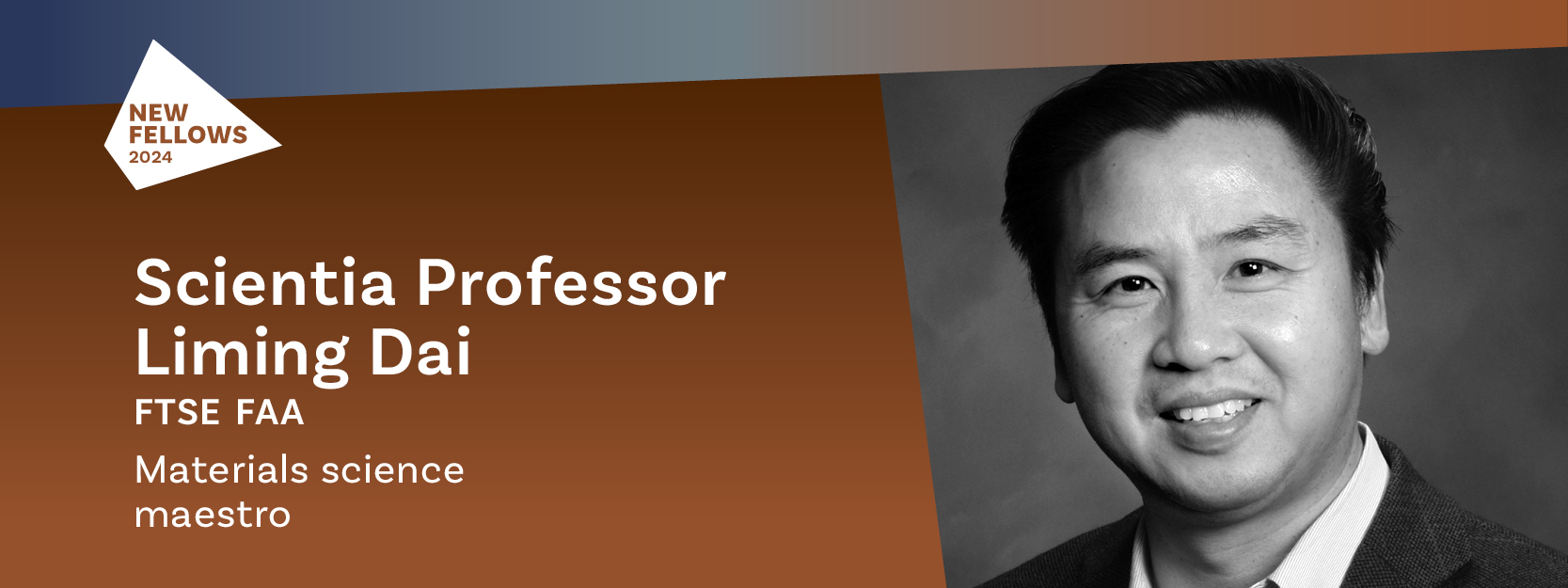
Professor Liming Dai is a world leader in carbon nanomaterials research and development. He holds 18 international patents with a remarkable commercialisation track record. Early in his career, he was a co-inventor of two patents at CSIRO that have subsequently become global successes for extended-wear contact lenses and contributed to the security features of polymer banknotes. Professor Dai discovered a rubber conduction mechanism, enabling the development of materials now used for flexible, wearable electronics. He pioneered vertically aligned carbon nanotubes, which have a vast array of technology applications including miniaturised touch sensors. He also developed revolutionary carbon-based electrocatalysts, opening up new pathways for greener renewable energy production. He established the ARC Centre of Excellence for Carbon Science and Innovation, a flagship national program to develop advanced carbon technology with a focus on enabling emissions reduction. Professor Dai is a multi-award-winning researcher and a Fellow of the Australian Academy of Science, the US National Academy of Inventors, and the European Academy of Sciences.
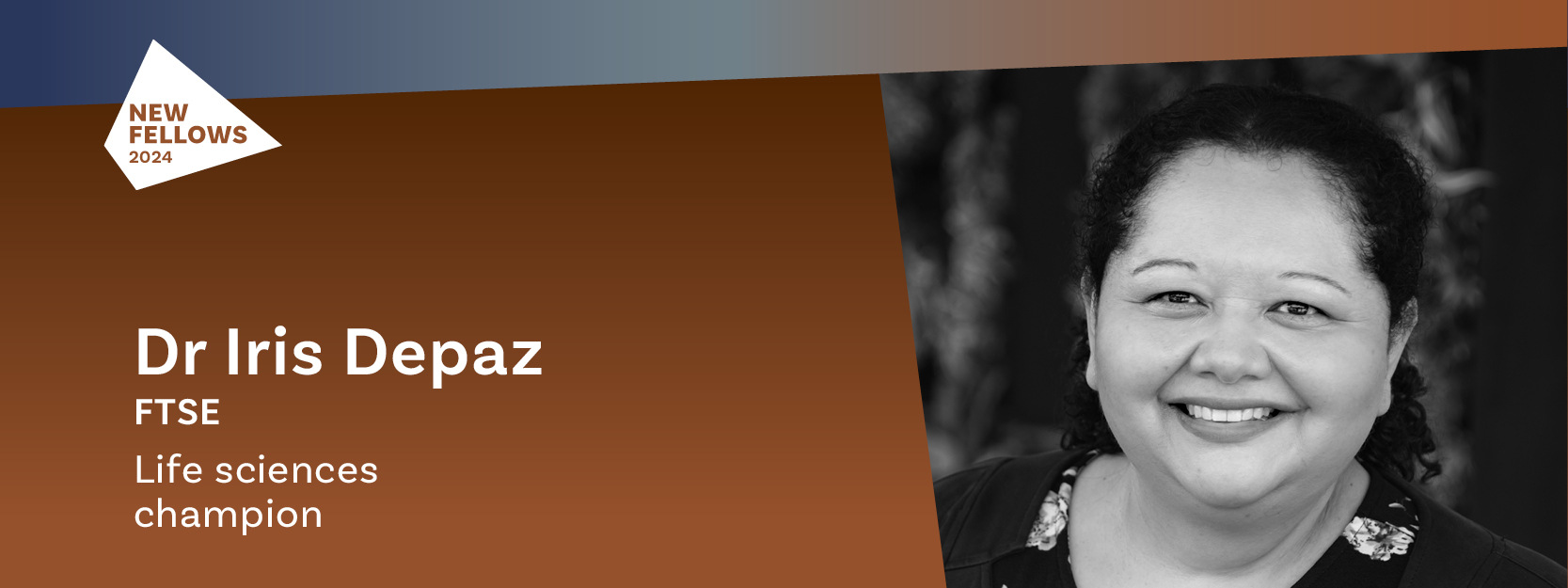
Dr Iris Depaz profoundly changed the model for the translation and commercialisation of medical research into the clinic in Australia, establishing a first-of-its-kind, global scientific community focused on mRNA technology and translational science. She led digital health projects using artificial intelligence and led the development of the first pneumococcal vaccine for ear disease in Indigenous children. She also commissioned training programs to combat vaccine hesitancy, rolled out to thousands of health professionals. Dr Depaz was known for her visionary leadership, her mentorship of researchers moving into industry, and her ability to engage widely to create impact. She was a dedicated and passionate champion of growing pharmaceutical and health technology companies in Australia.
Dr Depaz passed away in August 2024, prior to the announcement of her Fellowship. ATSE has chosen to honour her posthumously, in recognition of her significant contributions to medical research and translational science.
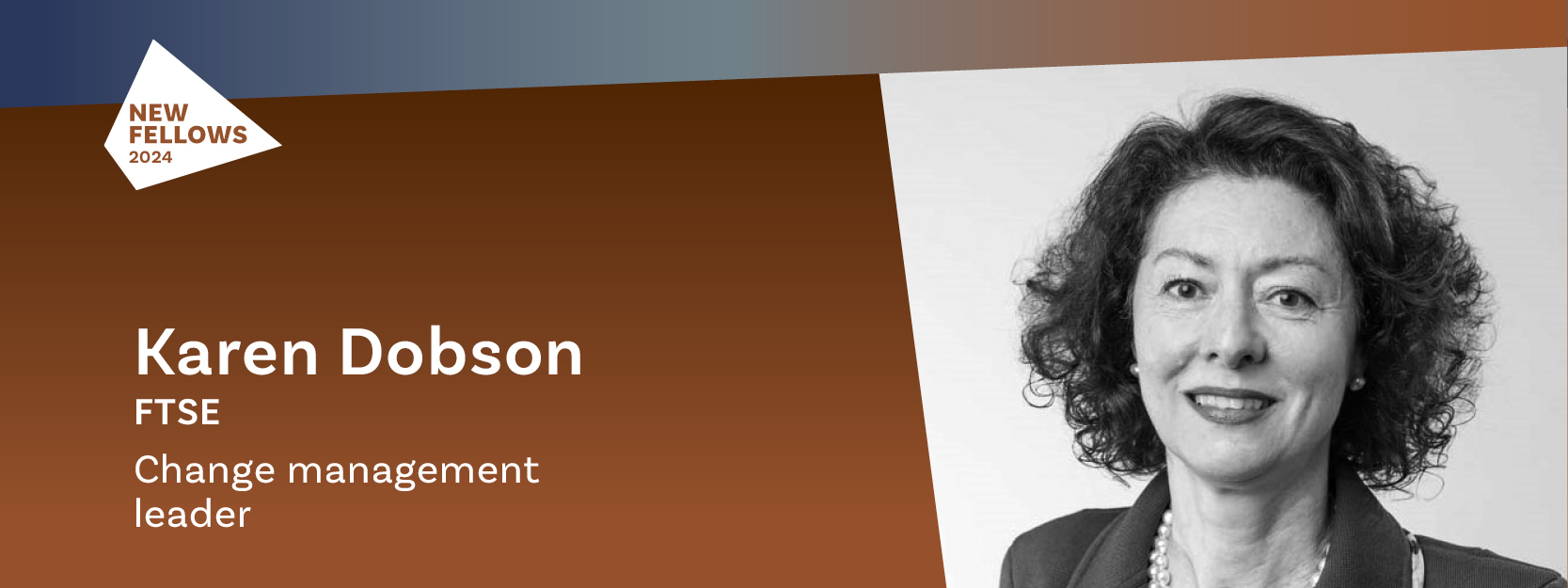
Karen Dobson is a leading advocate for advanced manufacturing in Australia. Throughout her career at Dow and her many advisory roles, she has influenced industry, government and university researchers to address issues of water scarcity, climate change and the circular economy. In her early career, she worked on the design and implementation of reverse osmosis systems throughout Asia, reducing the energy demand and cost of water desalination for industry and municipalities. More recently, she has advocated for the roll-out of best-practice environmental technologies, influenced changes in plastics recycling practice and championed commercial investment in recycling technology. She is a director of Chemistry Australia and the Business Council of Australia, a council member at the Royal Institute of Australia, and an advisory board member at the University of Queensland’s Dow Centre for Sustainable Engineering Innovation.
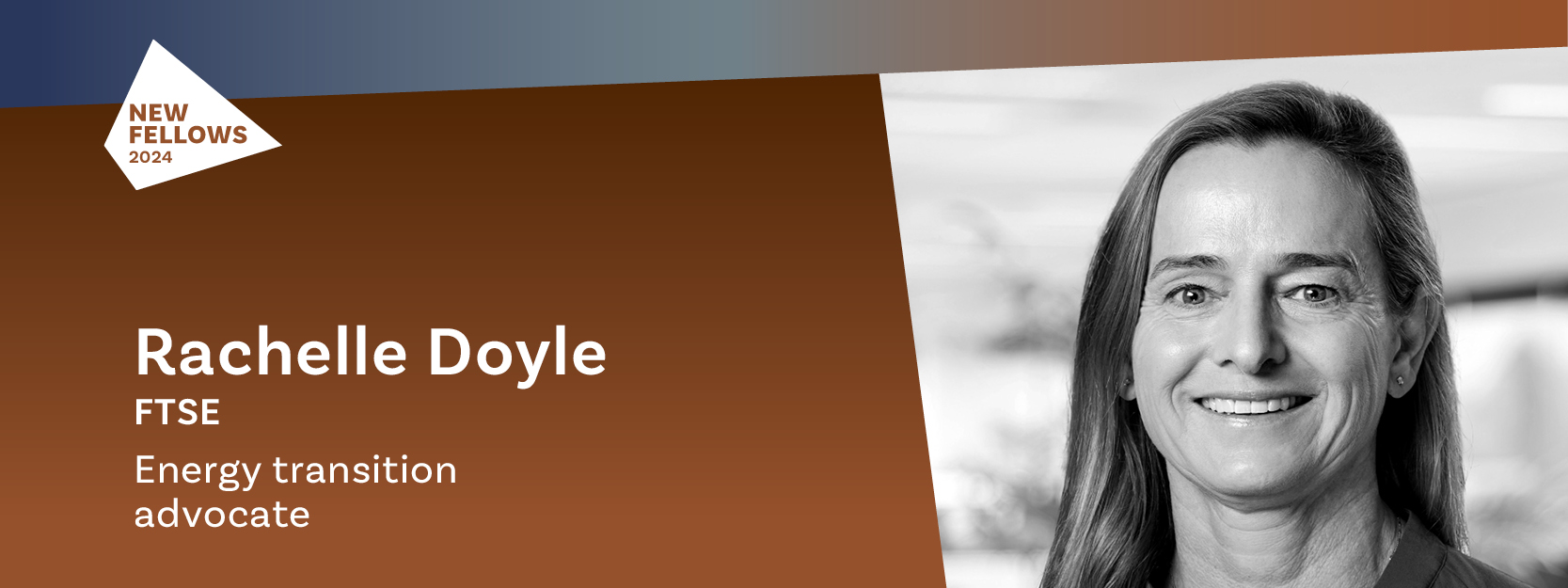
Rachelle Doyle is a passionate leader and advocate for the energy transition with extensive experience in the energy and minerals processing sectors. She has successfully led nationally significant projects involving innovative applications of technology, science and engineering ingenuity to solve challenges associated with complex projects and operating environments. She is chair of the Standards Australia ME093 Hydrogen Technologies Committee and played a pivotal role in shaping the standards and guidelines underpinning the safe and effective roll-out of hydrogen technologies across Australia. A highly regarded strategic thinker, she has a track record of building long-term meaningful industry-academia partnerships for sustainable development. She holds numerous advisory roles that draw on her insights and expertise for a low-carbon future, and she is a brilliant model for women in technology and engineering.
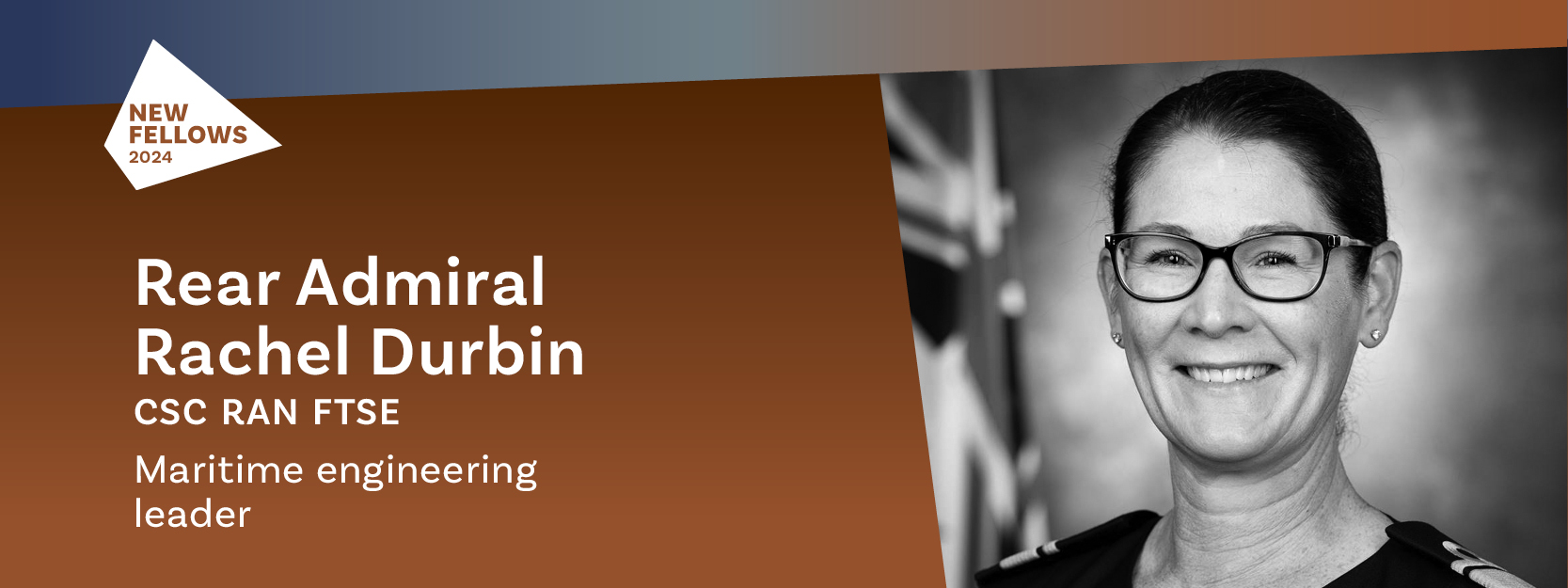
Rear Admiral Rachel Durbin has served in the Royal Australian Navy for more than 30 years, and currently holds the position of Head Navy Engineering and Defence Seaworthiness Regulator. She is experienced in maritime sustainment and upgrade, naval capability design, maritime safety, and environmental stewardship. An exemplary leader with deep engineering and technical knowledge, she plays a pivotal role in the engagement, planning and delivery of complex, cross-sectoral capabilities. She has expertly navigated her role through increasing complexity, resulting in improved material seaworthiness, asset reliability and mission effectiveness of naval assets; and with a passionate contribution to revitalising and empowering the professional engineering and technical network. In addition to her technical expertise, policy and operational leadership, she is an outstanding role model, dedicated to growing the naval engineering profession and promoting the impact of science and technology in Australia.
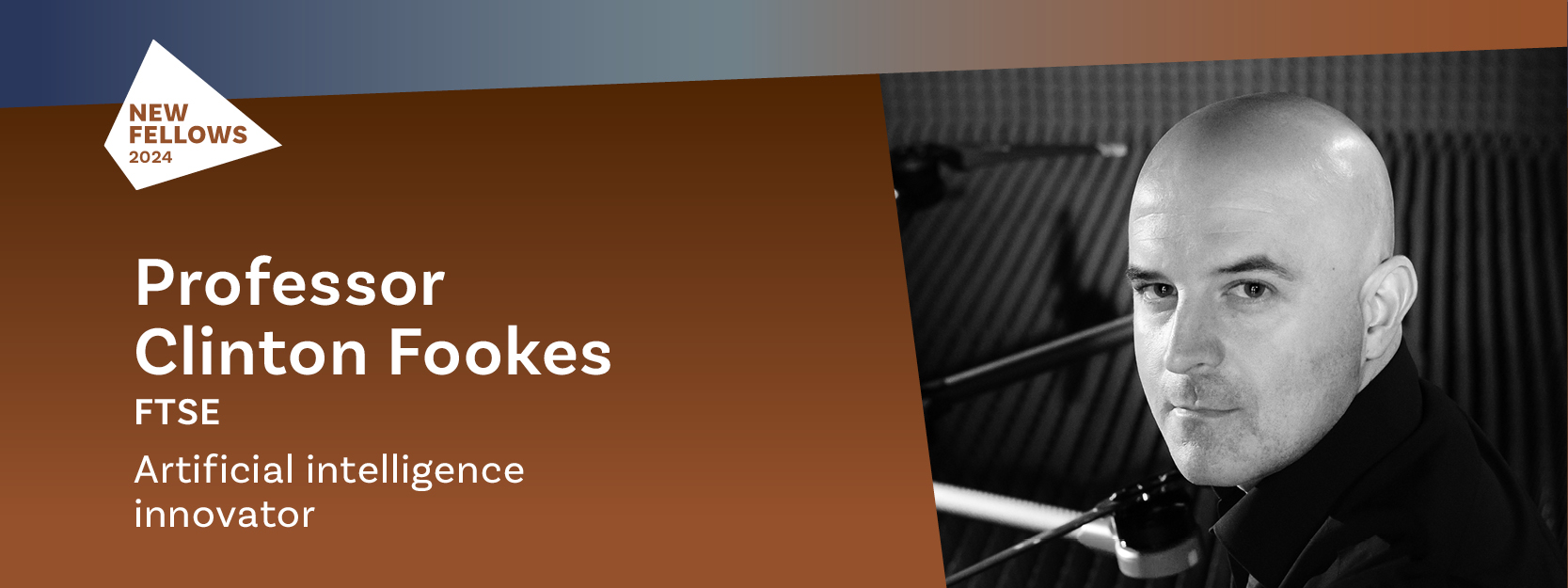
Professor Clinton Fookes has made significant advancements to Australia’s capabilities across computer vision, machine learning, signal processing and artificial intelligence (AI) technologies. His work has not only contributed to fundamental science, but it has also made vital contributions to Australia’s national security and a variety of industries. His research underpins breakthrough technologies across defence, security, mining, aviation, space, and healthcare. He is a trusted advisor to industry, defence and government on how advances in AI can be used to build sovereign capabilities, augment human abilities, improve efficiency, and enhance technological superiority. His achievements have garnered widespread recognition, including as 2022 Australian Defence Scientist of the Year. He demonstrates a deep commitment to training emerging researchers in this crucial area of expertise.
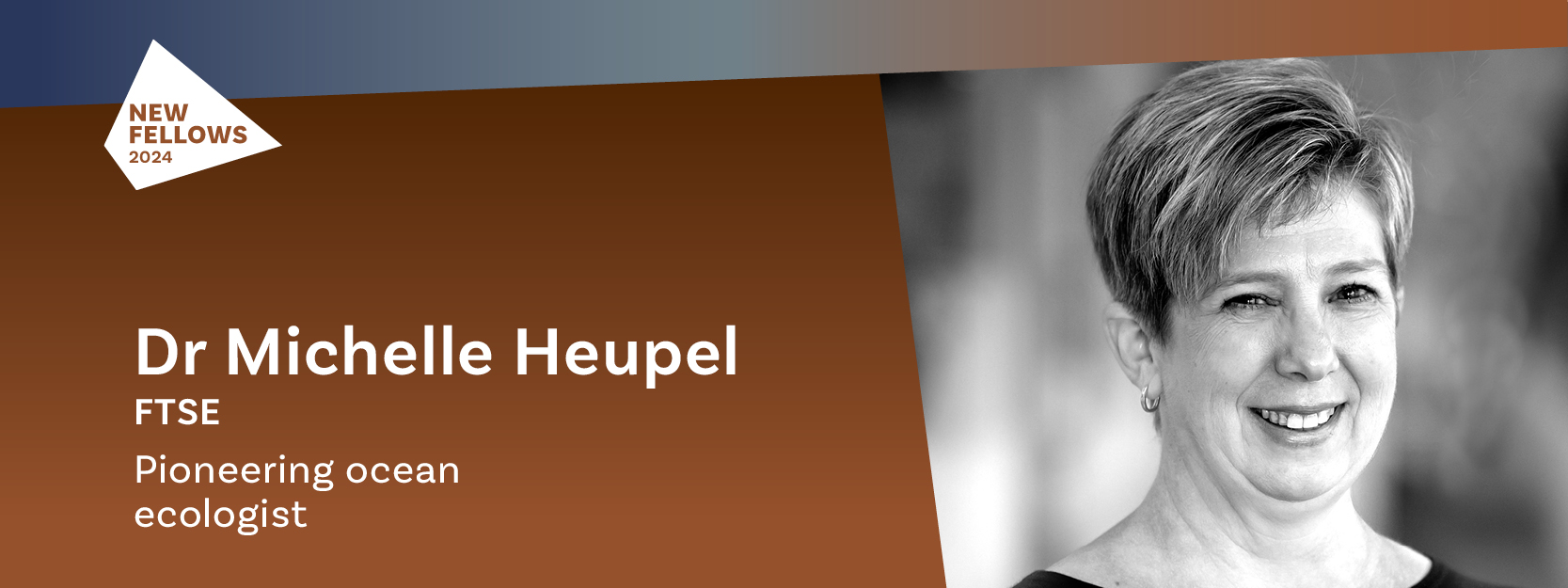
Dr Michelle Heupel revolutionised remote acoustic tracking of aquatic species to understand animal movement. She has successfully translated this research into powerful conservation action and policies at national and global scales. Her research has led to greater protections for sharks and other threatened species, informed fisheries stock assessments to enhance sustainability, and supported decisions about marine protected areas. She leads the highly successful Integrated Marine Observing System (IMOS), a significant collaborative ocean monitoring program. IMOS deploys observing equipment in the oceans around Australia and beyond, collecting data to support better management of sustainable ocean economies. She has served on Australia’s Threatened Species Scientific Committee. She also sits on a range of international bodies, including the UNESCO Ocean Decade Advisory Board and the International Union for the Conservation of Nature Shark Specialist Group.
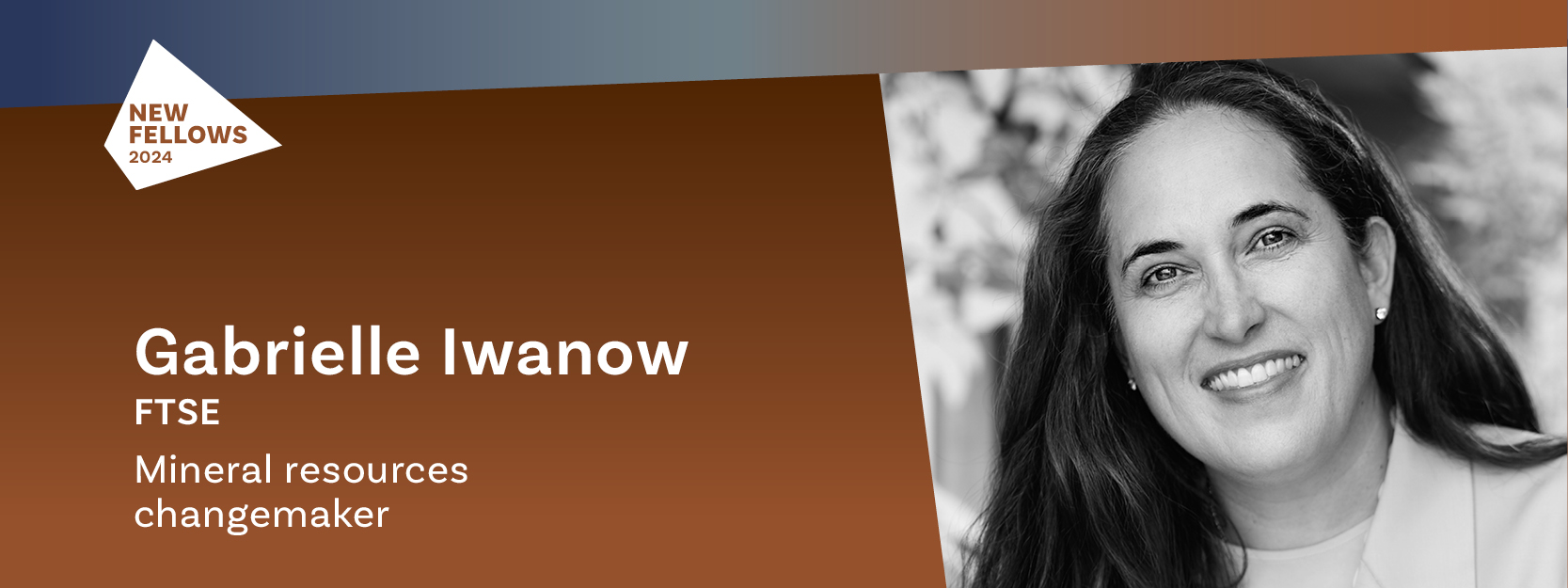
Gabrielle Iwanow is an outstanding leader in the mining sector, possessing a combination of technical excellence, strategic vision and ability to translate mission into impact. She has worked for Rio Tinto, OZ Minerals and Mincor Resources, and is now President, Contract Mining for global mining services group Perenti. Across her career, she has championed innovation and the use of novel technology to make mining safer, more sustainable and more efficient. She is a mentor and advocate for diversity, spearheading efforts to support and promote underrepresented groups including women and Indigenous First Nations people. As a member of the AusIMM Council for Diversity & Inclusion, she played a pivotal role in establishing widely recognised diversity initiatives. She won a Telstra Business Women’s Award in 2020, and was named one of the top 100 most inspirational women in mining.
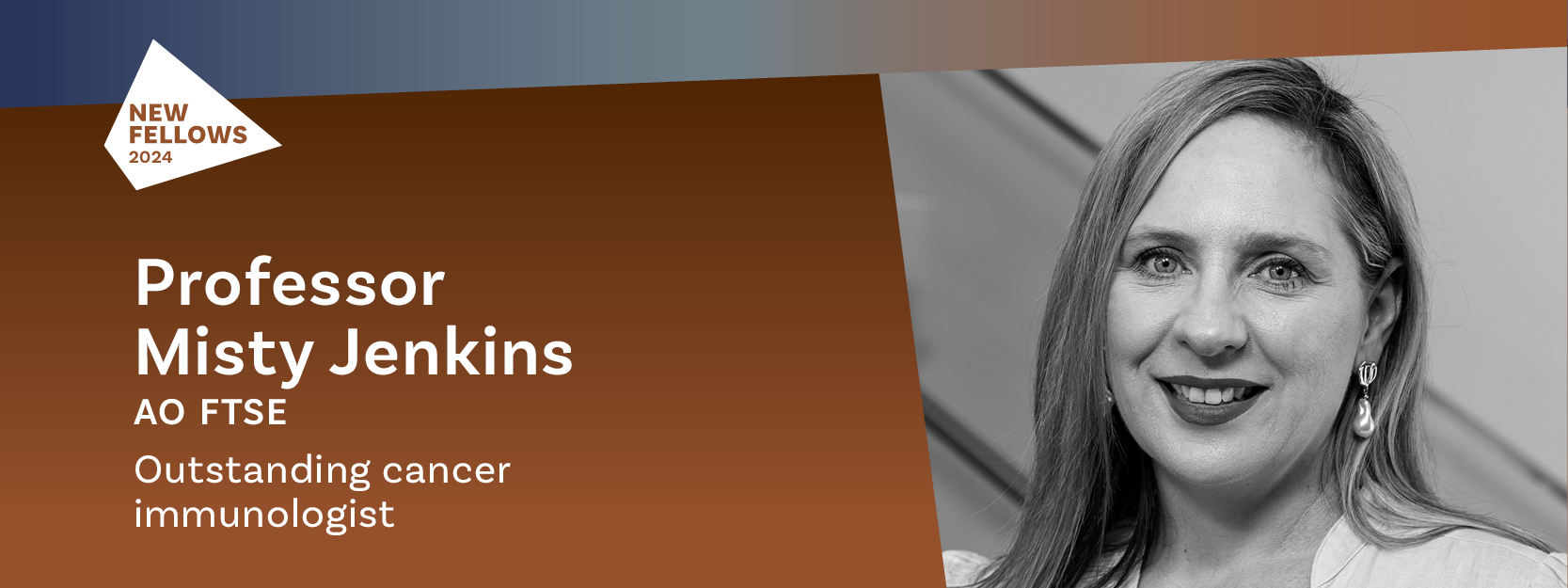
Professor Misty Jenkins is a leading immunologist who has made exceptional contributions to T cell immunology. Her research, focused on developing CAR T cell therapeutics for brain cancer, seamlessly straddles fundamental discovery research with clinical application. She has advanced the cancer immunotherapy frontier through her program’s discoveries of unique brain cancer targets, creation of assays vital for novel CAR T cell therapies, and development of live cell imaging. Of Gunditjmara descent, she is an influential contributor to First Nations affairs and actively shapes federal policy. She has chaired the board of the National Centre of Indigenous Genomics and co-chaired the MRFF Indigenous Health Research Fund, among other high-profile appointments. A mentor and role model, she actively promotes Indigenous representation and gender equity in STEM. She has won numerous awards including the L’Oréal Women in Science Fellowship, Victorian Honour Roll of Women, Top 100 Women of Influence and was inducted as an Officer of the Order of Australia.
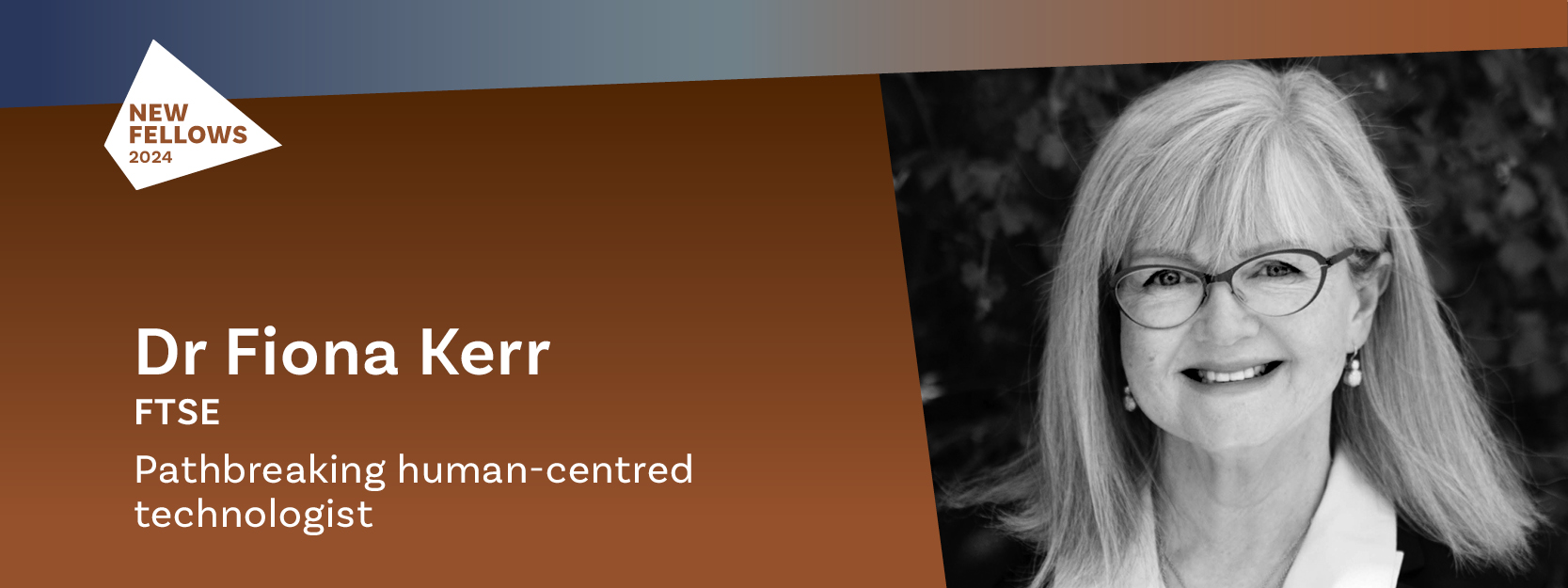
Dr Fiona Kerr is at the forefront of shaping a future that is technology powered and human centred. As founder of The Neurotech Institute, she combines unique expertise across cognitive neuroscience, anthropology, psychology, engineering, and complex system dynamics to address how we use emerging technology, when not to technologise, and ethical practices. Her trailblazing research debunked the assumption that humans exhibit the same level of complex and moral decision-making when interacting with trusted autonomous systems as they would with another human in close proximity. This critical discovery holds implications for defence personnel, doctors, surgeons, analysts, CEO’s and first responders and how they work with technology. She is a trusted advisor on ethical use of artificial intelligence, serving a range of board and organisational roles. She is also a skilled science communicator, delivering numerous keynotes annually.
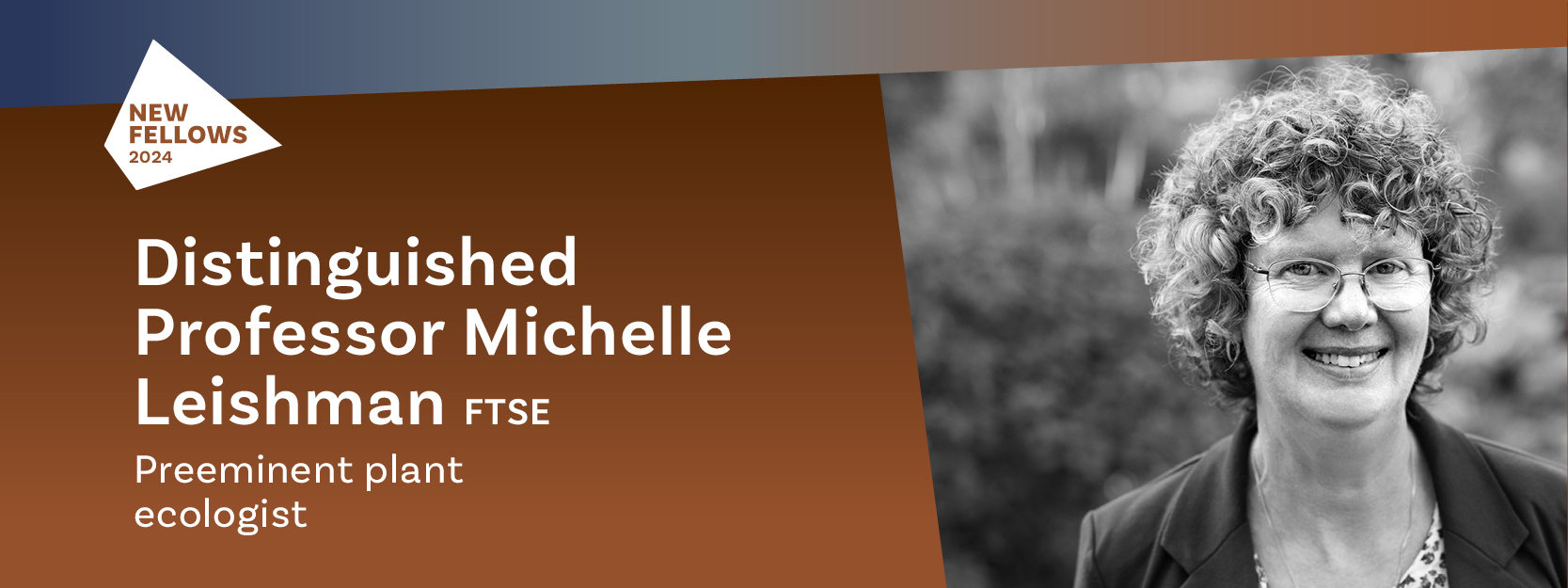
Distinguished Professor Michelle Leishman has transformed our understanding of how native plants, crops and weeds will respond to climate change. Her expertise in invasion biology, restoration ecology, climate change impacts and adaptation, and urban greening is world leading. A multi-award-winning plant ecologist, she deftly translates her research into evidence-based action – from applications in the nursery and horticultural industry, to advice and tools for frontline conservationists, to government policy designed to preserve Australia’s precious plant heritage. Her research underpins Australia’s myrtle rust action plan and a guide for green life industry on climate-smart species selection. She developed WeedFutures, predicting how 700 weeds will spread today and under climate change up to 2065. She also leads the Smart Green Cities Research Centre, with the goal of enhancing the liveability of cities and enabling sustainable green infrastructure.
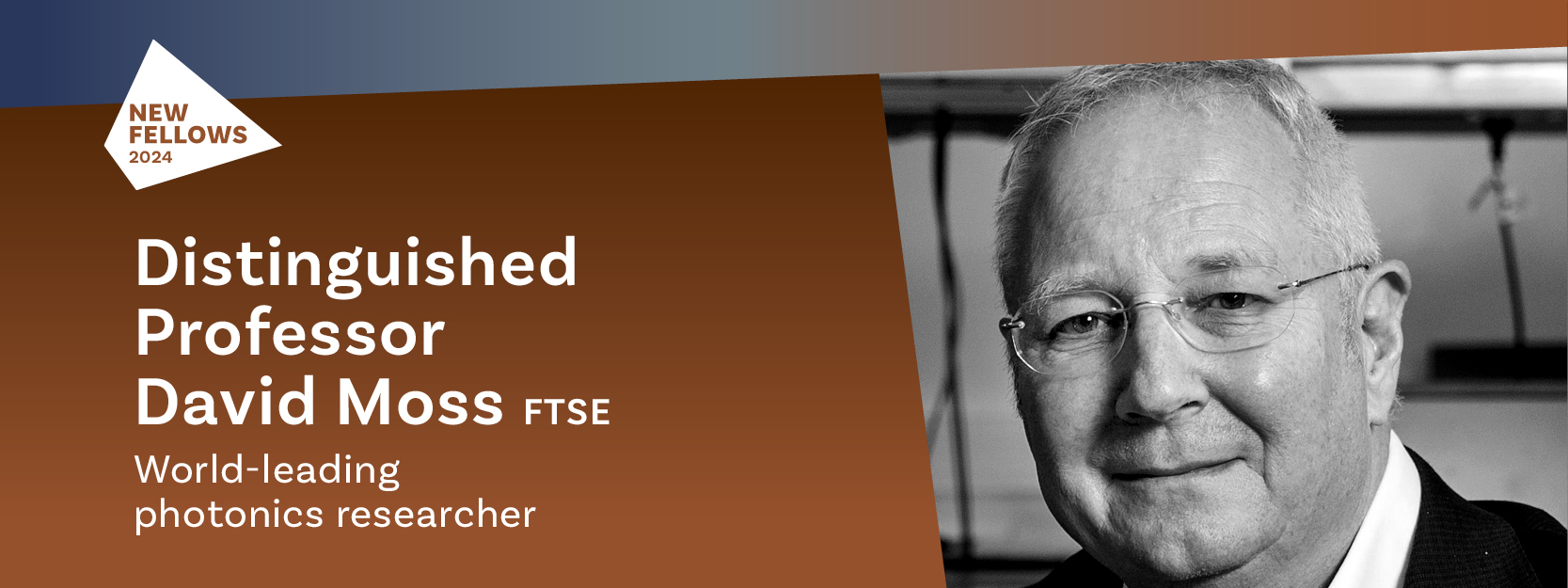
Distinguished Professor David Moss has made seminal contributions to photonics and optics, particularly his work with microcombs – devices that can link the electronic and optical frequency regimes. He reported the first integrated microcomb in 2010, a game-changing advance with potential applications across spectroscopy, communications and optical clocks, among many fields. This breakthrough, addressing energy and bandwidth bottlenecks for on-chip and chip-to-chip communications, earned him the 2011 Eureka Science Prize for Innovation in Computer Science. He has set two world records: the fastest data transmission down an optical fibre from a single chip, and a world-record high-speed optical neural network. He has also pioneered quantum optical microcombs, demonstrating high dimensional and multiphoton entangled states on a chip. He is a Life Fellow of the Institute of Electrical and Electronics Engineers, and a Fellow of both Optica and the International Society for Photonics (SPIE). He is director of Swinburne’s Optical Sciences Centre, deputy director of the ARC Centre of Excellence COMBS and chairman of the Australian public company Eden BDM Pty. Ltd.
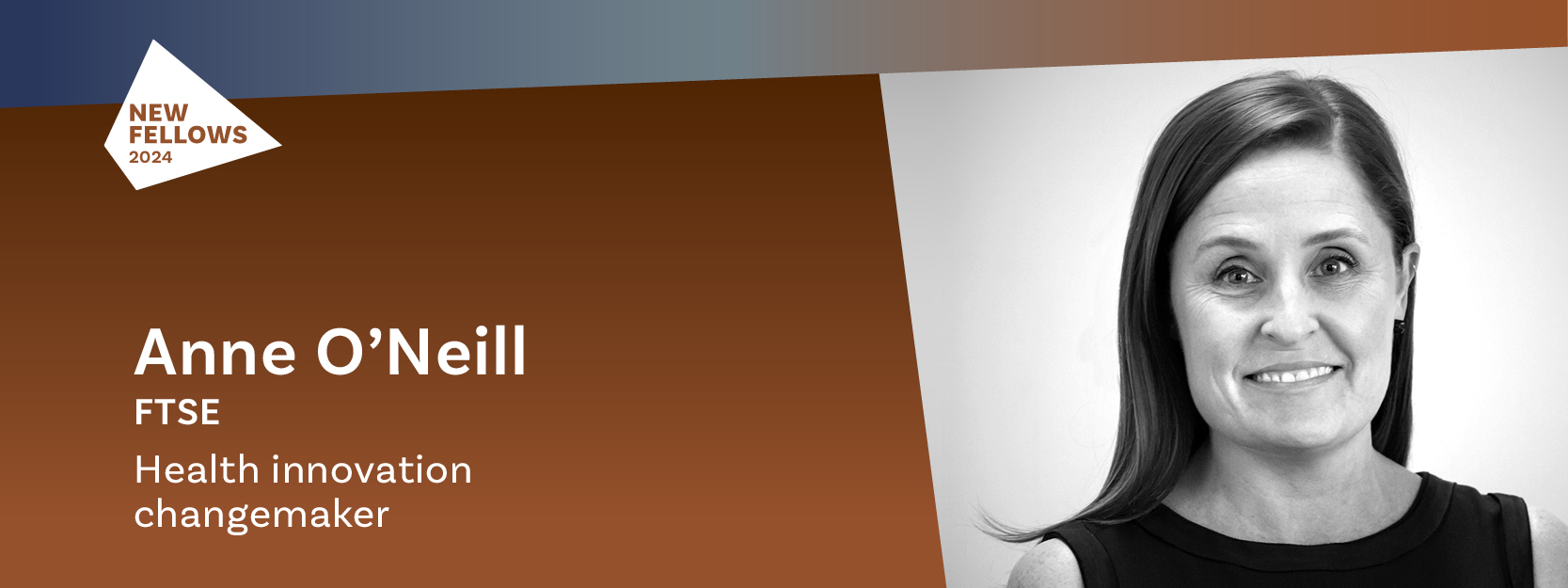
Anne O’Neill has transformed NSW’s health and medical research sector into a billion-dollar innovation engine for Australia and an international investment hub. She was architect of the phenomenally successful Medical Devices Fund and established a Commercialisation Training Program to fill a crucial gap in research translation. Her groundbreaking efforts set the blueprint for collaboration between government and industry to drive innovation and commercialisation. O’Neill is building critical capacity in Australia’s entrepreneurship ecosystem through development programs and policies that support early-stage researchers, founders, entrepreneurs and policymakers. An expert in commercialisation of medical technologies, she is a respected advisor to state and federal governments. She actively champions diversity as a mentor for women and historically underrepresented groups in STEM and healthcare.
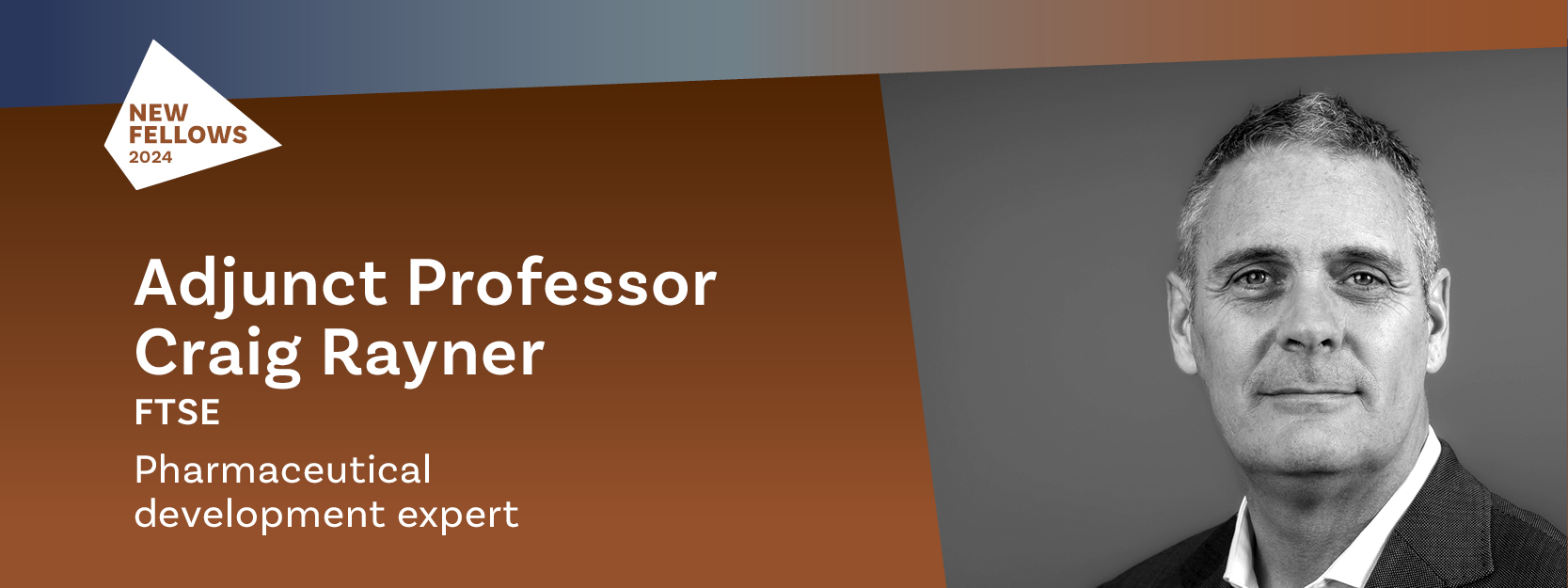
Adjunct Research Professor and Distinguished Alumnus Craig Rayner is a clinical pharmacologist and leading authority in model-informed drug development. He has made key contributions to numerous medicine approvals, including treatments for bacterial infections, influenza and river-blindness, and designed hundreds of clinical trials. During the Covid-19 pandemic, he provided expert scientific advice to governments, the World Health Organization and NGOs, and led work to debunk and uncover potential Covid-19 interventions. As inaugural director of Moderna’s Regional Research Centre for Respiratory Medicines and Tropical Diseases (RRC), he helped establish translational, clinical and regulatory science R&D projects and training programs, helping Australia build leading edge capabilities in mRNA science. He currently serves as Director of Translational medicine, Infectious Diseases Development, a global clinical development role uniquely based in Australia, at the RRC. Adjunct Professor Rayner bridges seamlessly between the private sector and academia. He built companies to multibillion dollar value, serves on advisory boards, and is adjunct professor and distinguished alumnus at Monash University. He was appointed a Fellow of the Royal College of Physicians of Edinburgh in 2021.
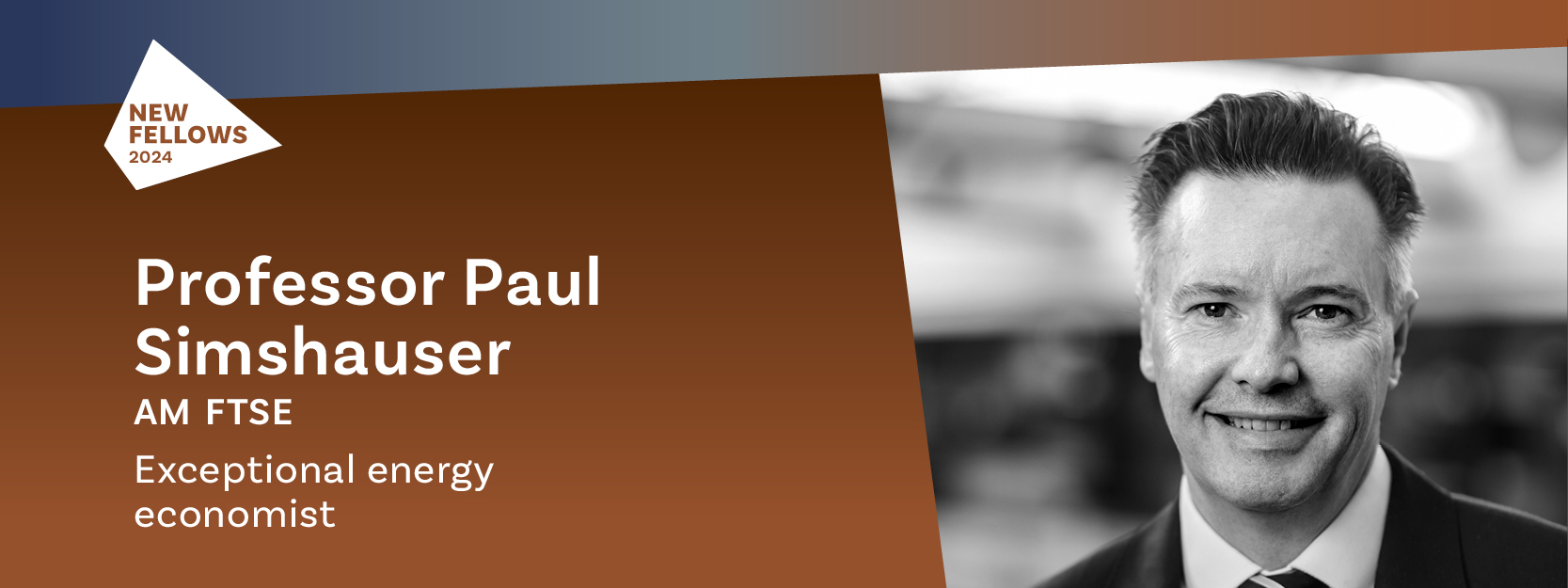
Professor Paul Simshauser is a leading energy economist, with a remarkable record of achievement across government, academia and industry. He is professor at Griffith University’s Centre for Applied Energy Economics and Policy Research, publishing widely on renewable electricity, energy hardship and climate policy. He is also chief executive of Powerlink, Queensland’s electricity transmission network operator. In this role, he is translating research into reality as he leads Queensland’s transition to a low-carbon, clean-energy future, while ensuring positive social and economic outcomes. He has led policy reform to expand support for vulnerable energy households and led Queensland’s first rollout of solar and battery capacity in a remote Indigenous community. His insightful research into important energy transition questions, and ability to navigate the commercial and political implications of his work, make him a trusted adviser to the Australian and Queensland governments.
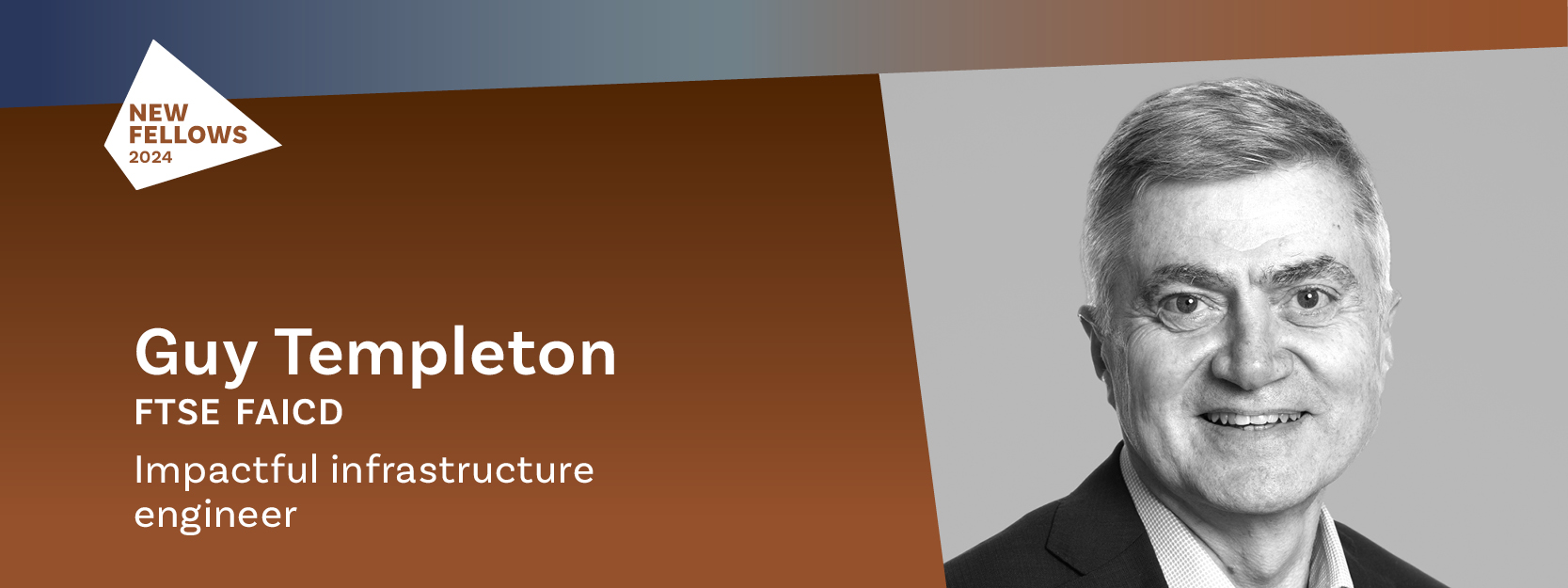
Guy Templeton is a distinguished Australian engineer and business leader. For 12 years, he was the chief executive of Asia Pacific at WSP, a global firm specialising in engineering and environmental services in transportation and infrastructure, the built environment, energy and mining. He was also a member of WSP’s global leadership team. In this role, he was responsible for major technically diverse and complex infrastructure projects in over a dozen countries. He led the firm’s industry-leading commitment to halve the carbon emissions in its designs by 2030 and oversaw efforts to enhance Indigenous outreach and diversity and inclusion, including achieving Employer of Choice for Gender Equality citations and establishing a Stretch Reconciliation Action Plan. Mr Templeton contributes his expertise through various roles in business peak bodies, and shapes STEM teaching and research agendas as an advisor at both UTS and UNSW.
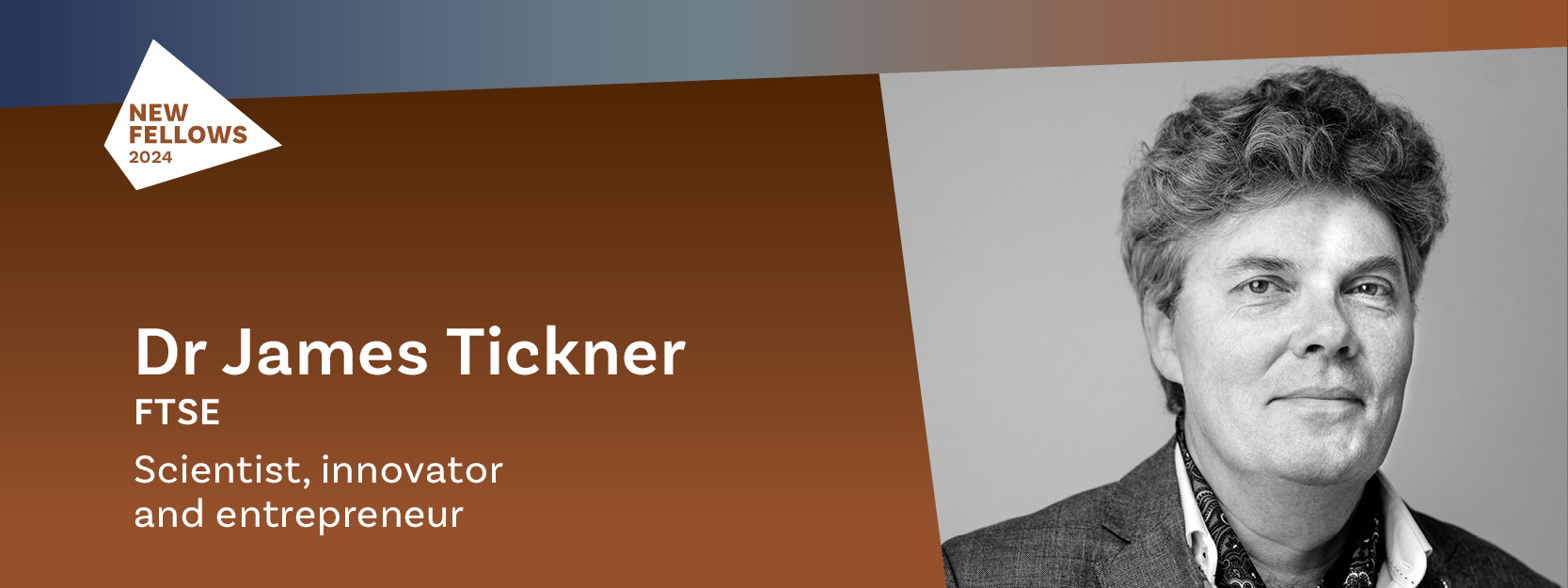
Dr James Tickner has achieved global impact through his research, inventions and leadership. As co-founder and chief technology officer of Chrysos Corporation, he oversaw the successful commercialisation of the PhotonAssay technology that he initially developed whilst working at the CSIRO. PhotonAssay provides a faster, cleaner, safer and more accurate way of measuring gold, silver and other elements in mineral ores, and is transforming the global mining industry. He also contributed to the invention and commercialisation of numerous X-ray and nuclear-based instruments for mining and security applications, including the Eureka-prizewinning CSIRO air cargo scanner. Dr Tickner holds more than 90 patents and has won multiple awards, including the 2022 Prime Minister’s Prize for Innovation and the ATSE Clunies Ross Technology Innovation Award. An advocate for the role of early-career researchers, he helped found the Global Young Academy, an international collaboration giving young scientists a voice in policy and education.
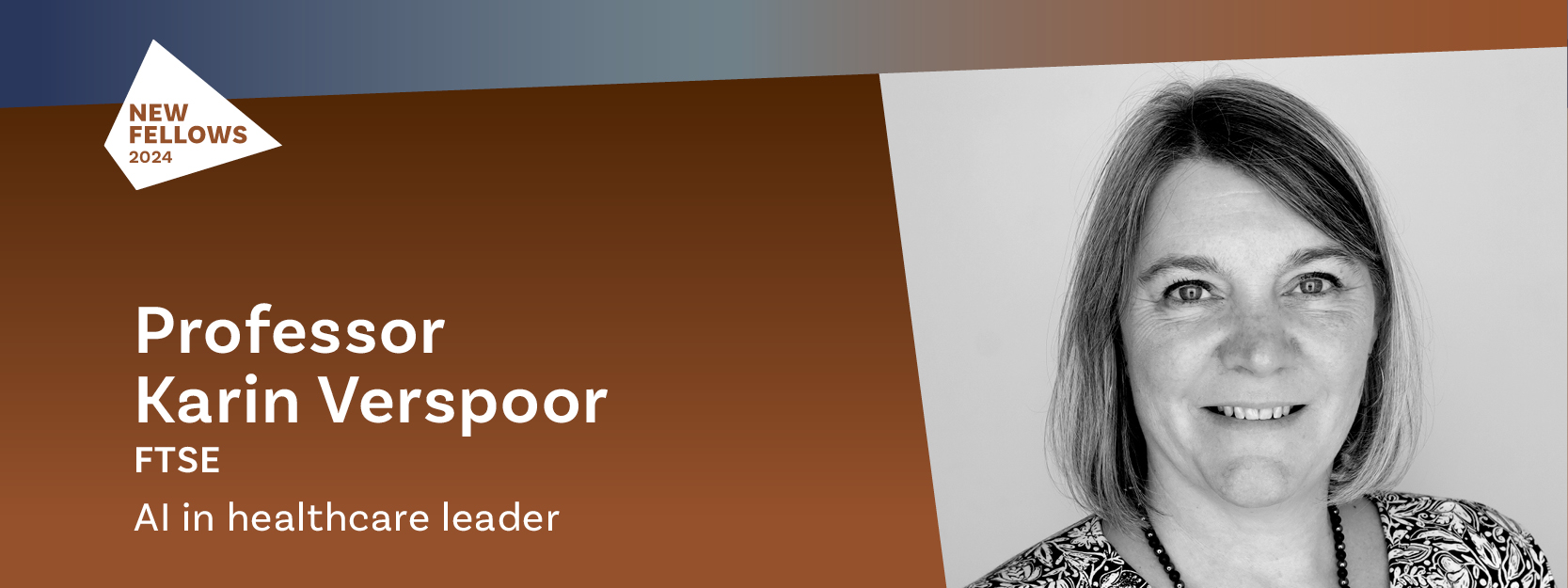
Professor Karin Verspoor is a leading expert on artificial intelligence, applying language technologies to health and biomedical data – from text mining records, to guiding appropriate use of antimicrobial medicines, to detection and prediction of disease from clinical data. She has more than 25 years’ experience leading research and development across start-ups, government laboratories, and academia. She is currently executive dean of the RMIT School of Computing Technologies, where she has fostered a vibrant learning community. She has achieved significant educational impact through curriculum and diversity initiatives that engage students, actively cultivating a diverse new generation of technology scholars. Her thought leadership and communication shapes the discourse around ChatGPT, generative AI, and responsible innovation in digital health.
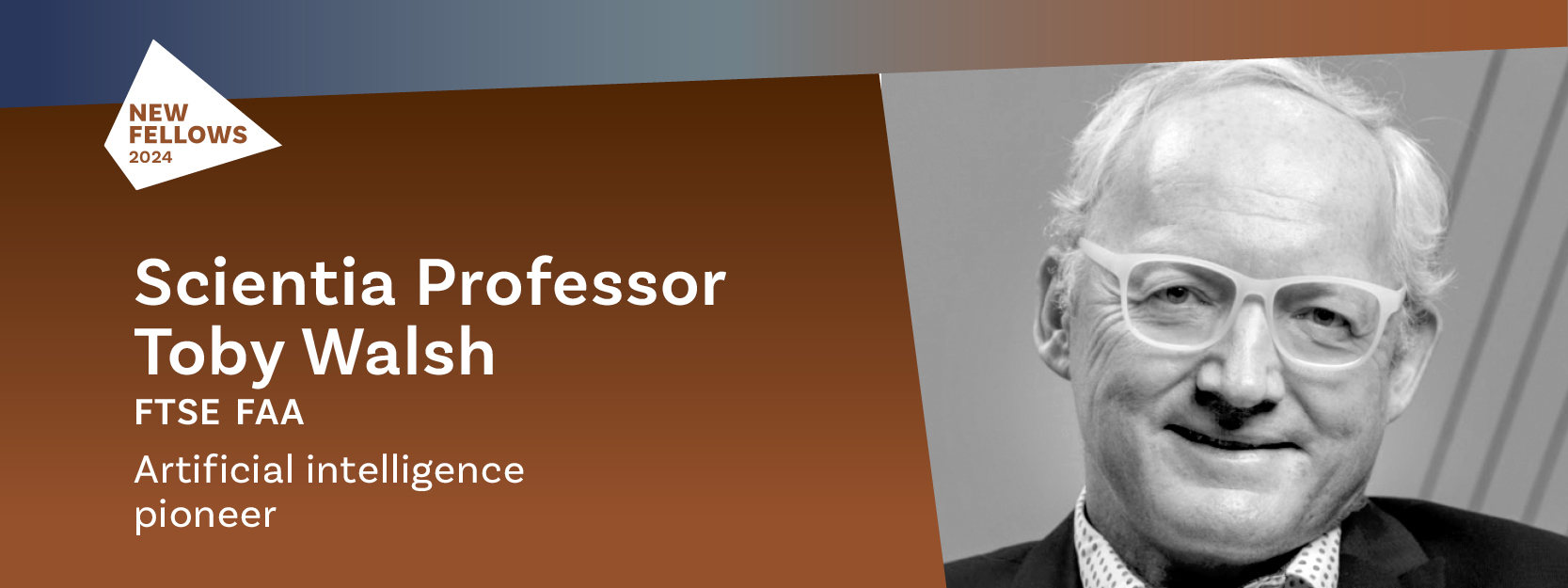
Professor Toby Walsh has made important contributions to computer science and the foundations of artificial intelligence. His work builds on ideas from statistical physics, economics and game theory to study challenging optimisation problems such as scheduling and vehicle routing. His theoretical advances and algorithms have led to considerable economic value in areas such as optimising truck routes, both saving costs and reducing carbon emissions. In addition to his technical prowess, Professor Walsh is a renowned advocate for trustworthy AI. He is highly sought after for his ability to articulate complex concepts in a way that resonates with policymakers, industry and the general public. He has served as a key advisor to governments, international organisations and industry bodies, providing guidance and recommendations on AI governance, regulation and strategic planning.
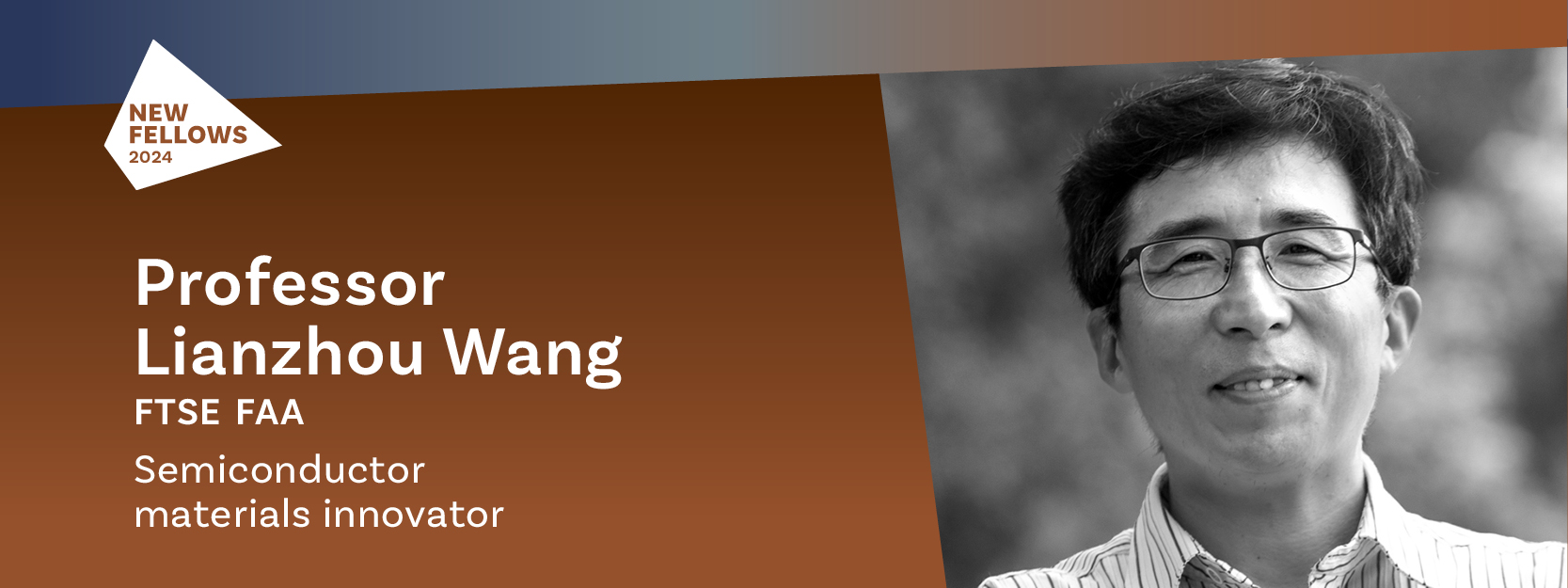
Professor Lianzhou Wang is widely recognised for developing novel nanomaterials for clean energy technologies. An exceptional advocate for translational research, he has invented numerous patented semiconductor materials which have been commercialised in diverse fields. His research underpins battery materials, catalysts for water purification, low-cost solar cells with world-record efficiencies, light-emitting materials and UV-protection coatings. His work also extends into device manufacturing and advanced mineral processing. He contributes his expertise and mentorship through numerous leadership roles, including the ARC Council of Experts, as director of the Nanomaterials Centre, and as president of the Australian Materials Research Society. He is the chair of the National Committee for Materials Science and Engineering, contributing to strategic science policy advice, and has represented Australia in various international professional societies.
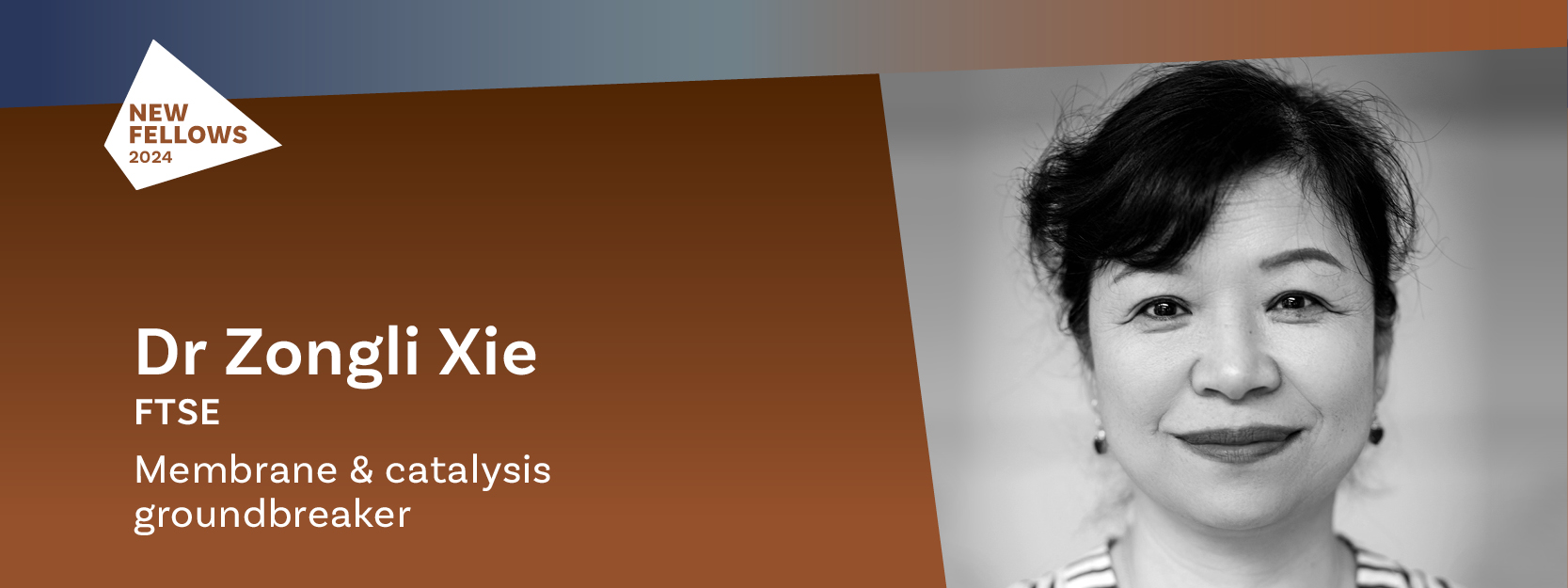
Dr Zongli Xie’s groundbreaking membrane and catalysis technologies have generated tangible benefits for both industry and the environment. She works with major national firms and small enterprises to find solutions that help address environmental and water challenges and is known for her masterful ability to translate ideas from the lab into commercial success. Her research encompasses applications in emission control, wastewater treatment and water recycling. She has five patents and led commercial trials for innovative environmental catalyst to abate air pollution and greenhouse gases from industrial emissions. Dr Xie is a role model and a leader in her field, recognised through various appointments including as vice president of the Membrane Society of Australasia, committee member of the International Water Association, and as a board director of the Monash Centre for Membrane Innovation.
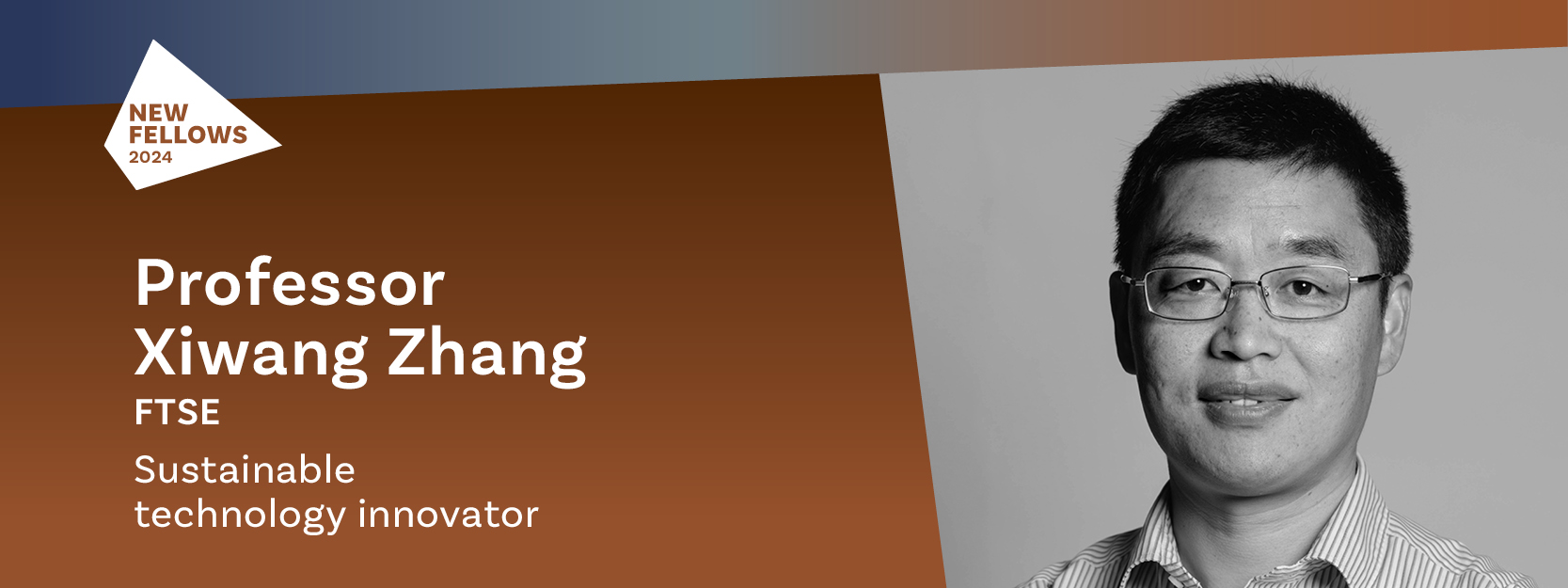
Professor Xiwang Zhang is internationally recognised for his innovative work on membrane science and technology, tackling complex challenges in the crucial nexus of water, environment and climate change. As a visionary interdisciplinary leader, Professor Zhang established the ARC Industry Transformation Hub for Energy-Efficient Separation (EESep) that translated membrane science and technology into practical solutions across a range of fields, including clean water production, wastewater recycling, biotechnology, mining and more. Professor Zhang also leads the ARC Centre of Excellence for Green Electrochemical Transformation of Carbon Dioxide (GETCO2), a national initiative focused on converting CO2 to valuable products. His leadership is driving technology innovation for decarbonisation, playing a pivotal role in the global fight against climate change.
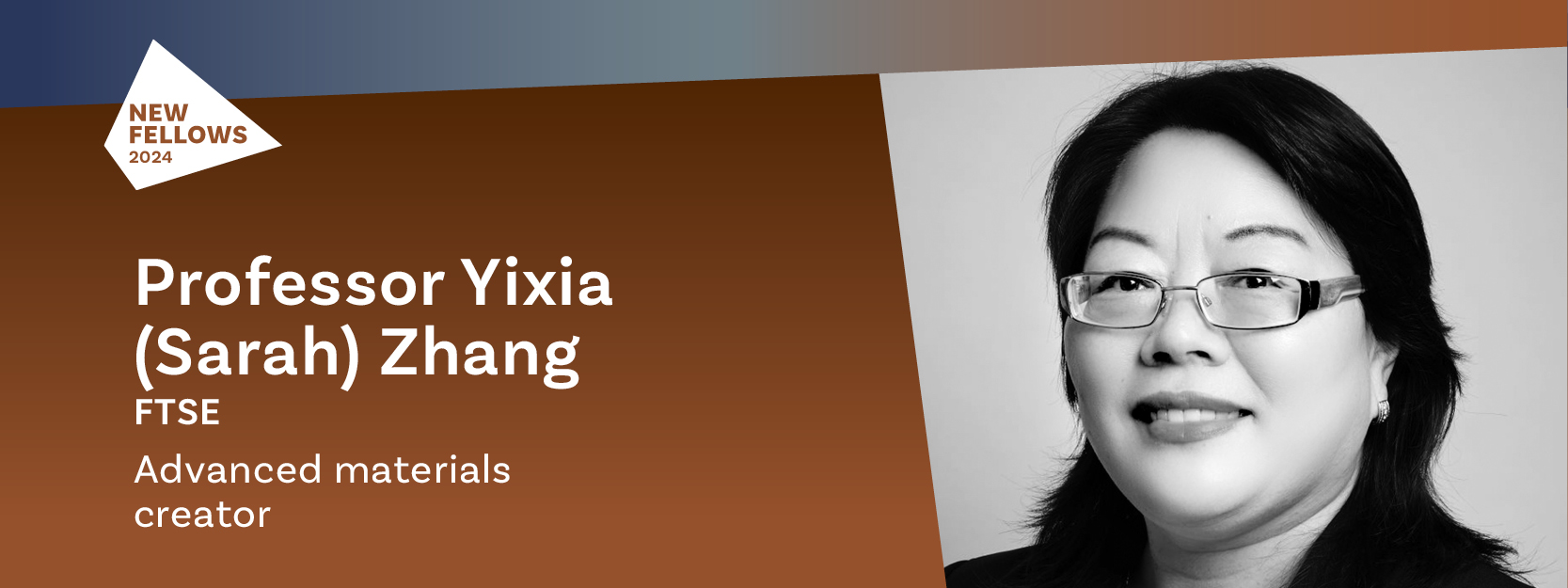
Renowned for research in the infrastructure and composites industry, Professor Sarah Zhang has led more than 50 projects focused on advanced materials and composite structures. Her work includes the breakthrough development of green and water-resistant magnesium oxychloride cement (MOC) in partnership with UBIQ Technology, creating a formulation that revolutionised the cement’s applications outdoors as well as indoors. With a strong focus on meeting industry and societal needs, she has led influential projects on fibre-cementitious composites, as well as manufacturing high performance nanocomposite adhesives for aerospace and defence applications. Professor Zhang has made significant contributions to academic governance as deputy chair of the Academic Senate at Western Sydney University, and has an enduring interest in engineering education, with an outstanding record of fostering diversity in the field.
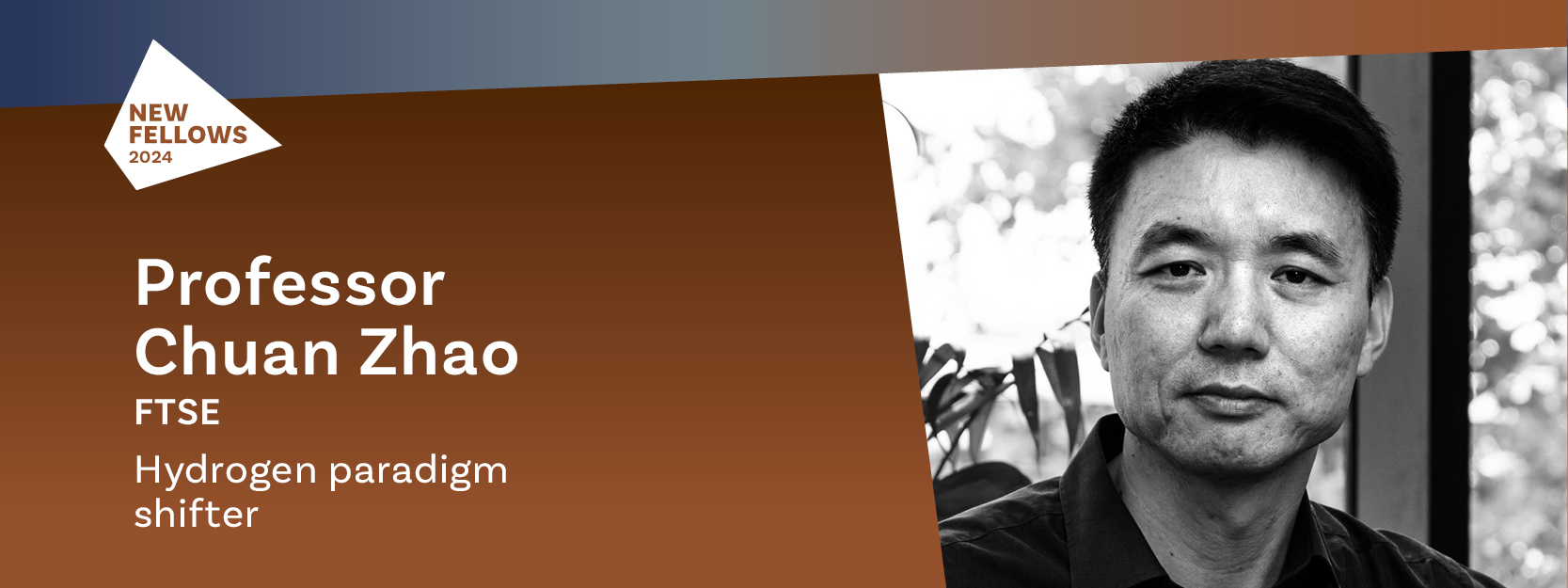
Professor Chuan Zhao is supercharging Australia’s green hydrogen capabilities with breakthrough water splitting electrode technology. After pioneering a 3D nickel-iron electrode – used to produce hydrogen from water – with exceptional durability and record-high efficiency, he oversaw its technical development through to commercialisation at a spin-out company. This 3D-electrode® technology is now industry standard and represents a significant leap forward for zero-carbon hydrogen in Australia. Professor Zhao’s electrochemistry innovations have also been applied in water-sensing technology for the petroleum industry, cochlear implants, and conversion of carbon dioxide into useful products. He holds multiple leadership positions and is a Fellow of the Royal Society of Chemistry, the Royal Australian Chemical Institute, and the Royal Society of New South Wales.
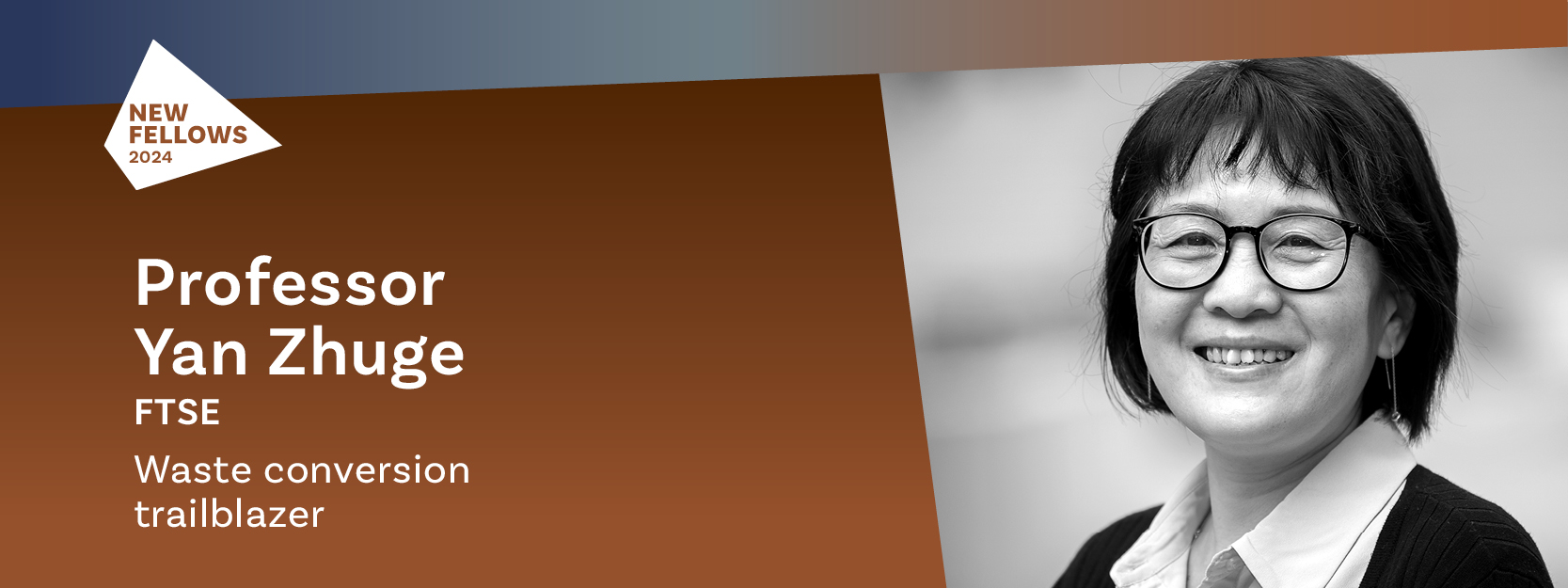
Professor Yan Zhuge is a structural engineer with an impressive track record developing innovative green materials. In particular, she converts industrial waste into high-value construction products. She has repurposed old tyres into safe and sustainable concrete and developed world-first self-healing concrete from water treatment sludge. She has also led research investigating how sawmill waste can be transformed into steel-timber beams. Commercialisation of these inventions is underway. Professor Zhuge has forged impactful industry collaborations both in Australia and internationally. She is also an active advocate for women in STEM, and a mentor for young engineers from diverse backgrounds.
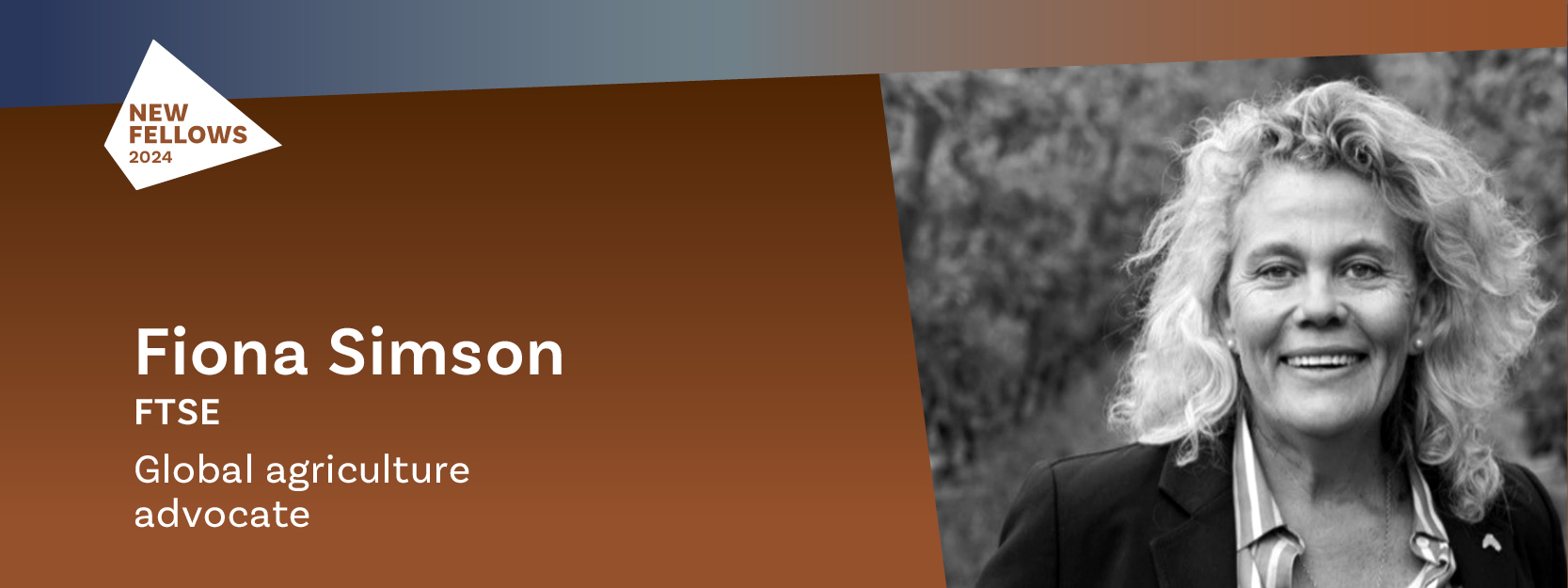
HONORARY FELLOW
Fiona Simson is a prominent champion for rural and regional issues in Australia and on the world stage. A farmer on the Liverpool Plains of NSW, she has dedicated her career to supporting the sustainability and growth of rural and regional communities. She is the vice president of the World Farmers’ Organisation, as well as chair and commissioner at the Australian Centre for International Agricultural Research, Chair of the Future Food Systems CRC and a number of other Board and Advisory roles. Ms Simson was the first woman president of the National Farmers’ Federation, a role she served in for seven years. She is skilled in policy, governance and strategy, lending her expertise and highly respected voice to issues such as climate change, biodiversity and the future of food.
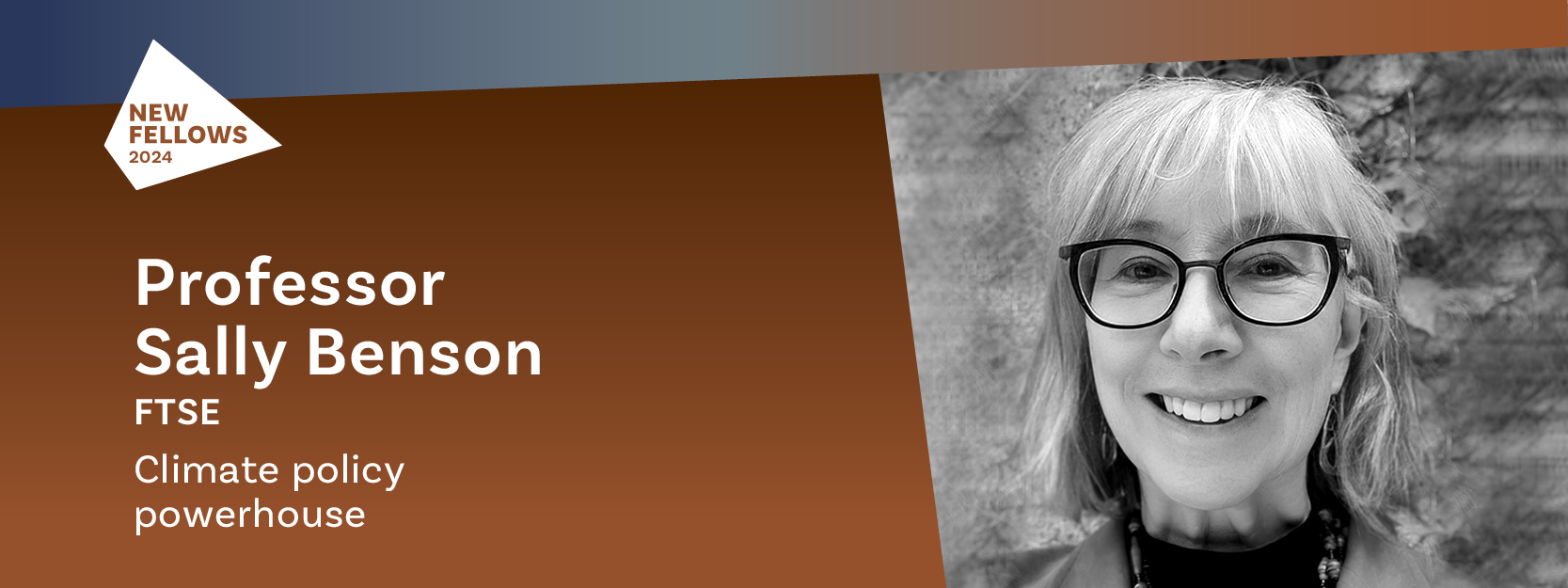
INTERNATIONAL FELLOW
Professor Sally Benson is a world-leading expert in clean energy, particularly in carbon capture and storage. Former Director of the eminent Precourt Institute for Energy, her research spans the physics of storing carbon underground, through to modelling whole industrial energy systems. She has shaped climate policy in the US and internationally as a highly respected and influential advisor, serving from 2021 to 2023 in the White House Office of Science and Technology as Energy Division Leader and Chief Strategist for the energy transition. An outstanding role model and scientific leader, Professor Benson has served on advisory boards, mentored many students, and won numerous awards. She was elected to the American Academy of Arts and Sciences in 2023.